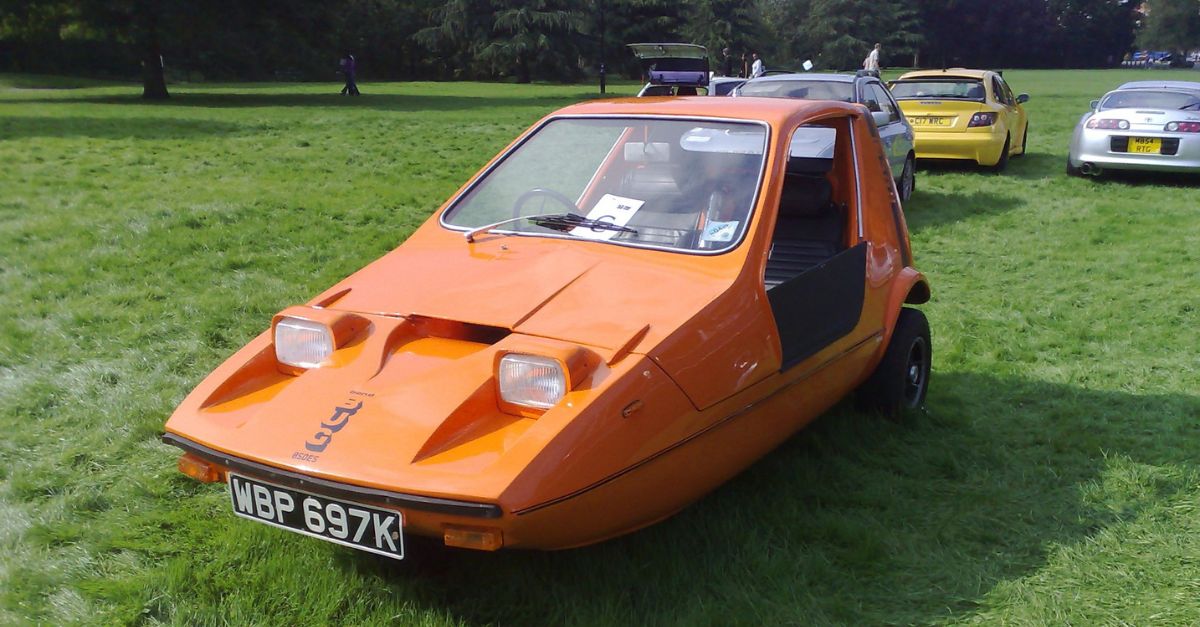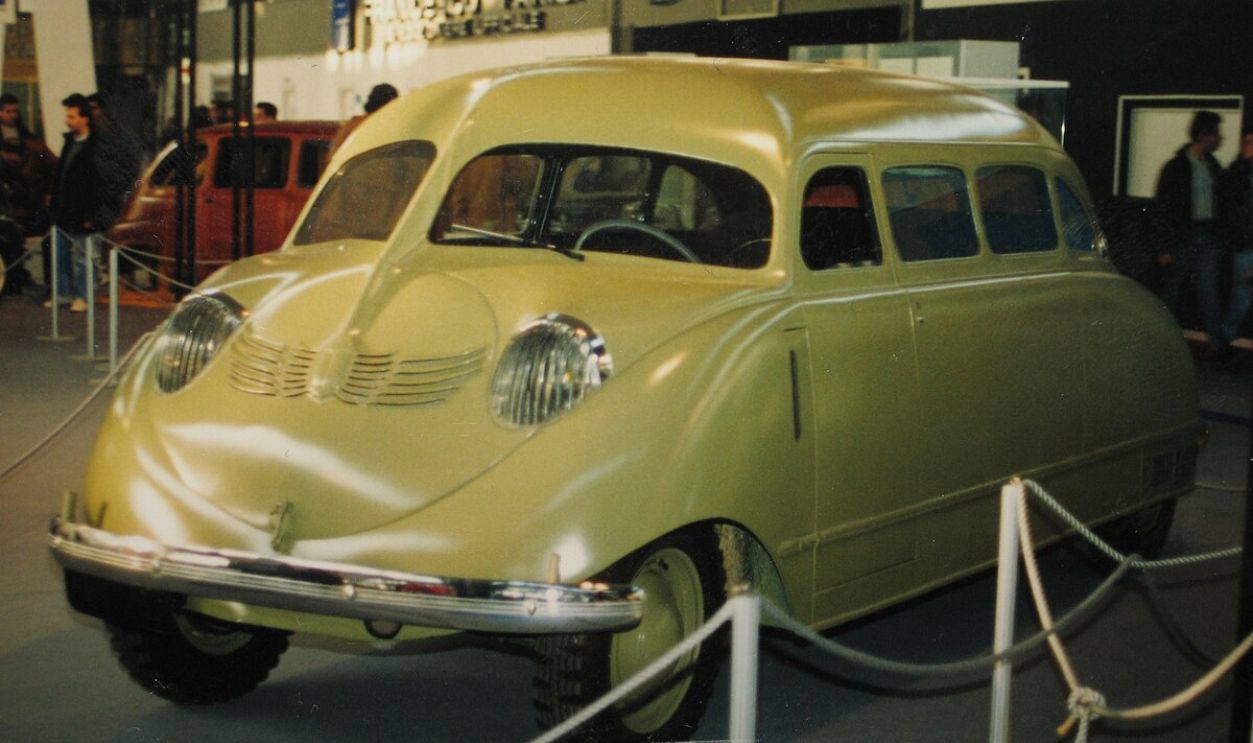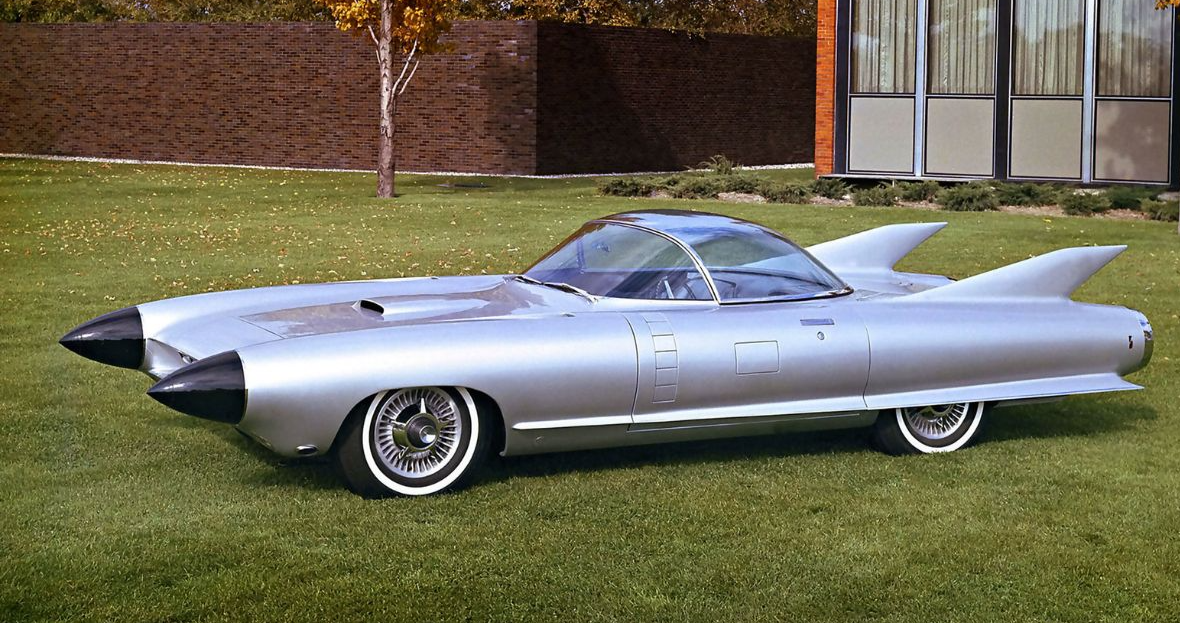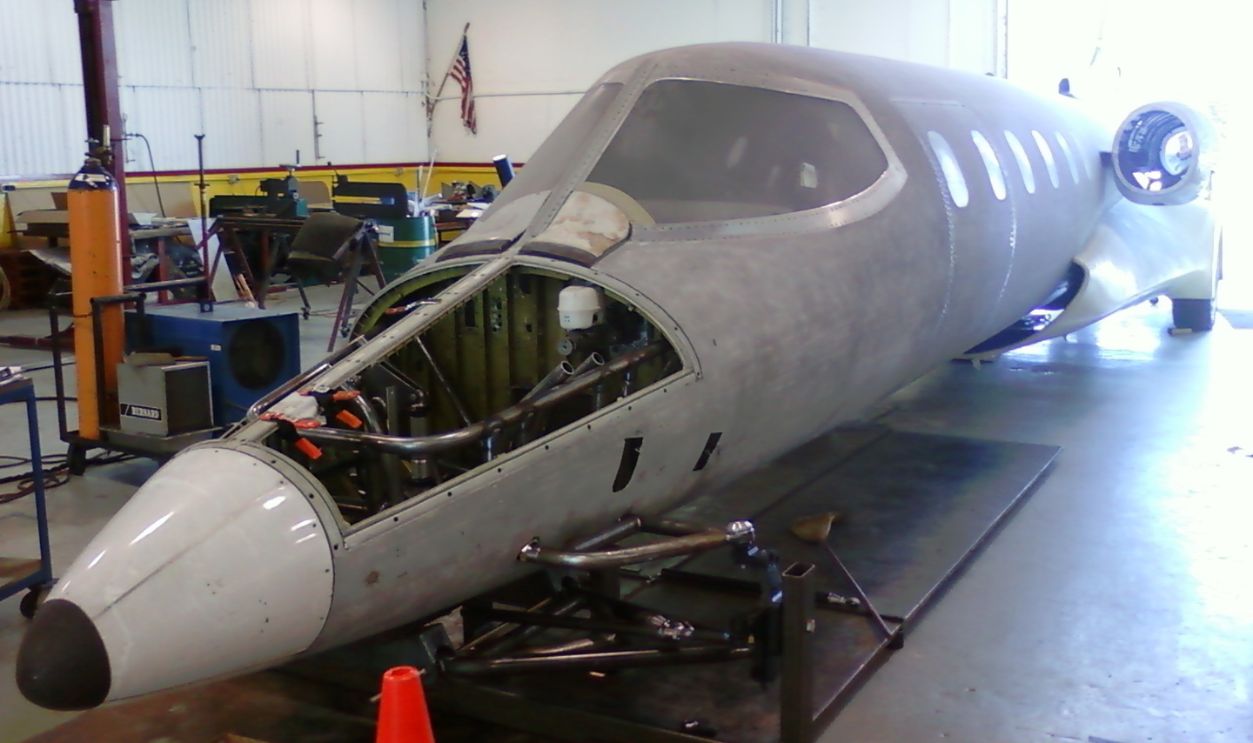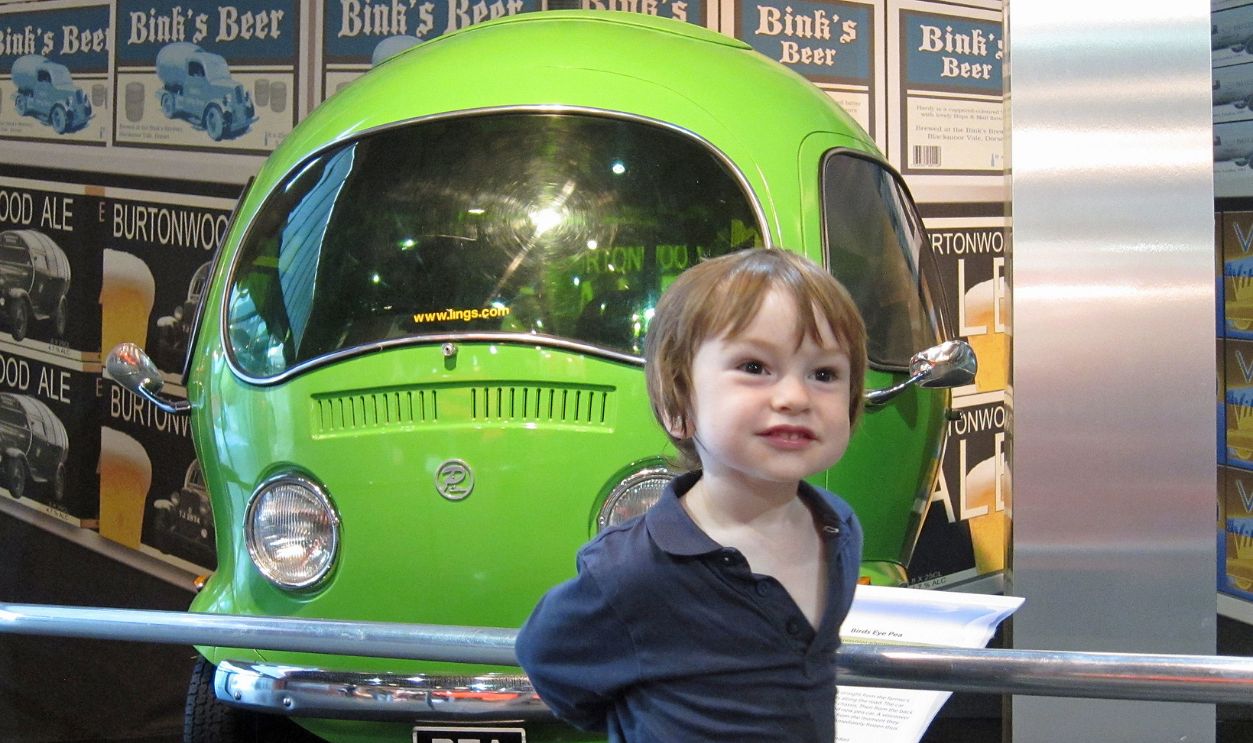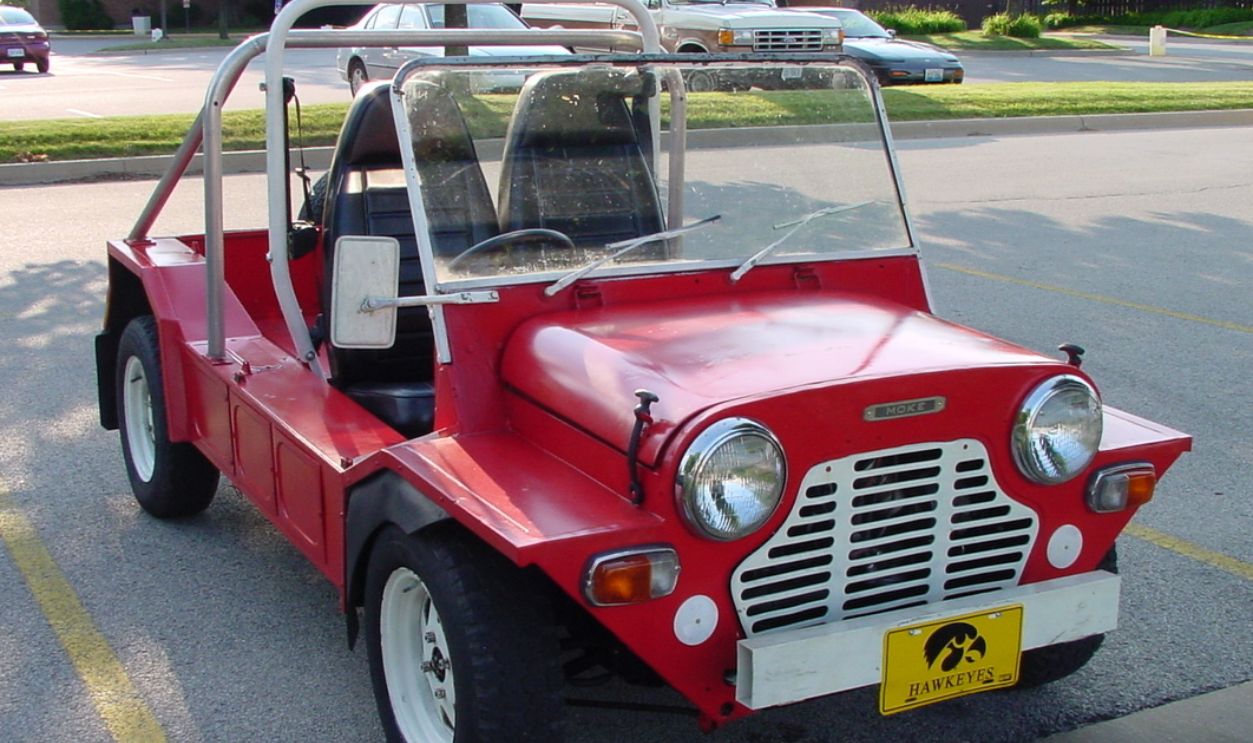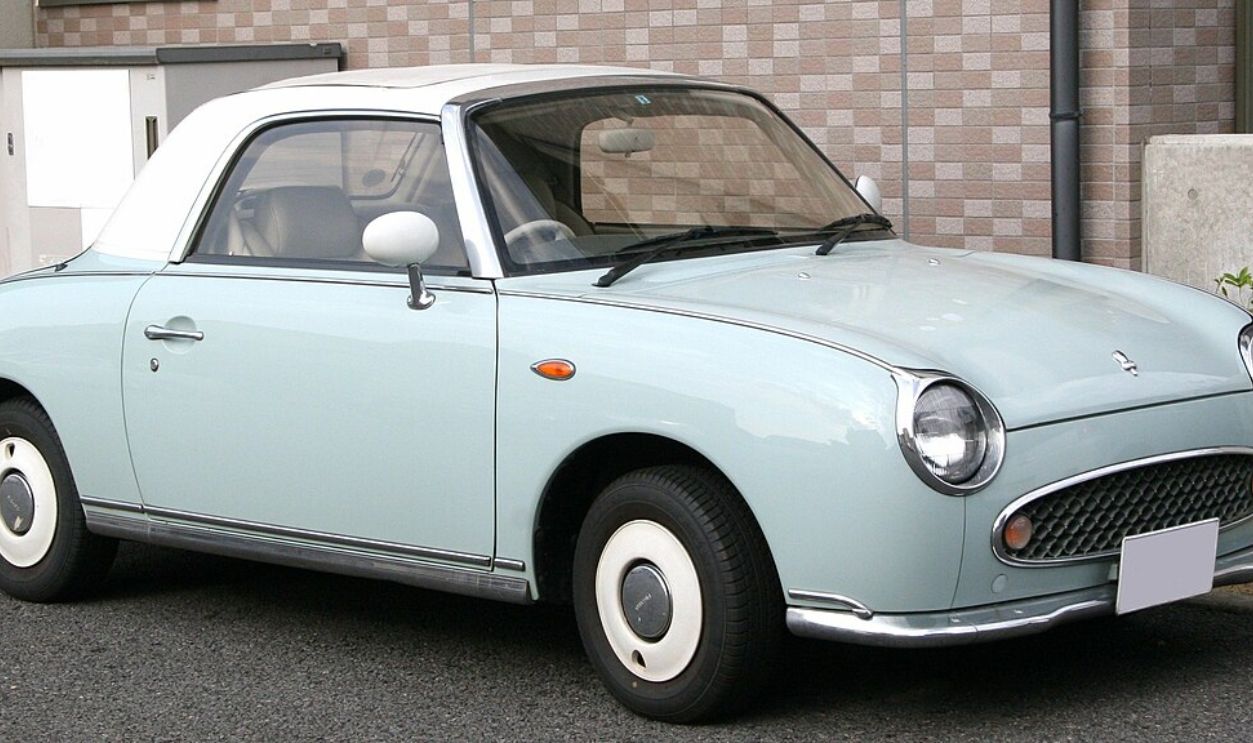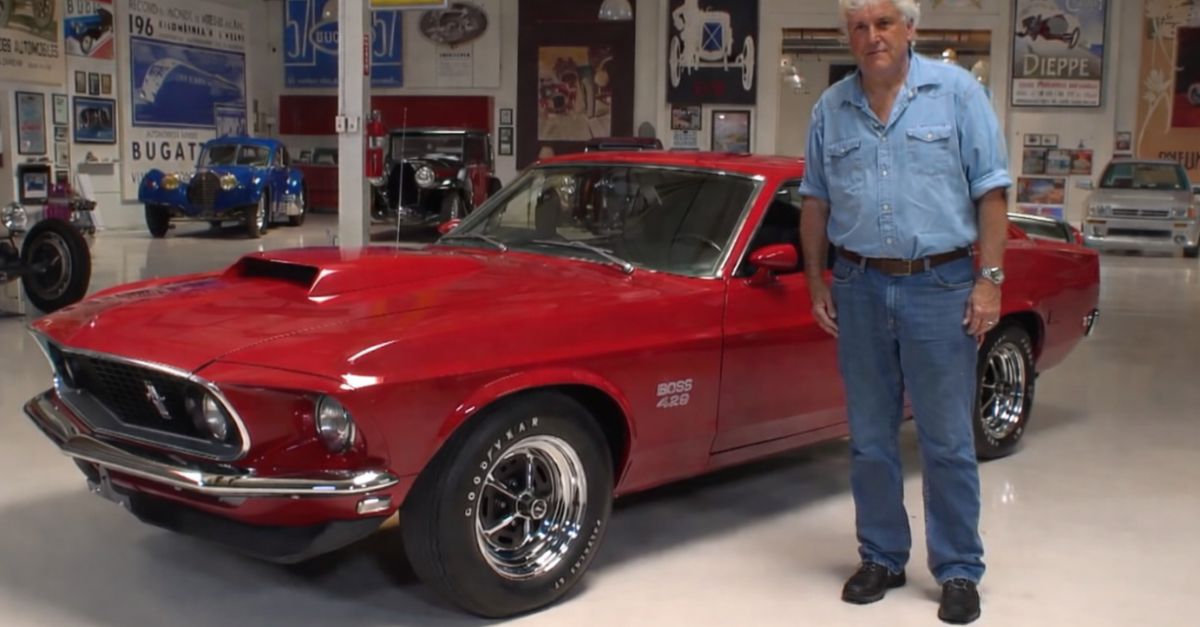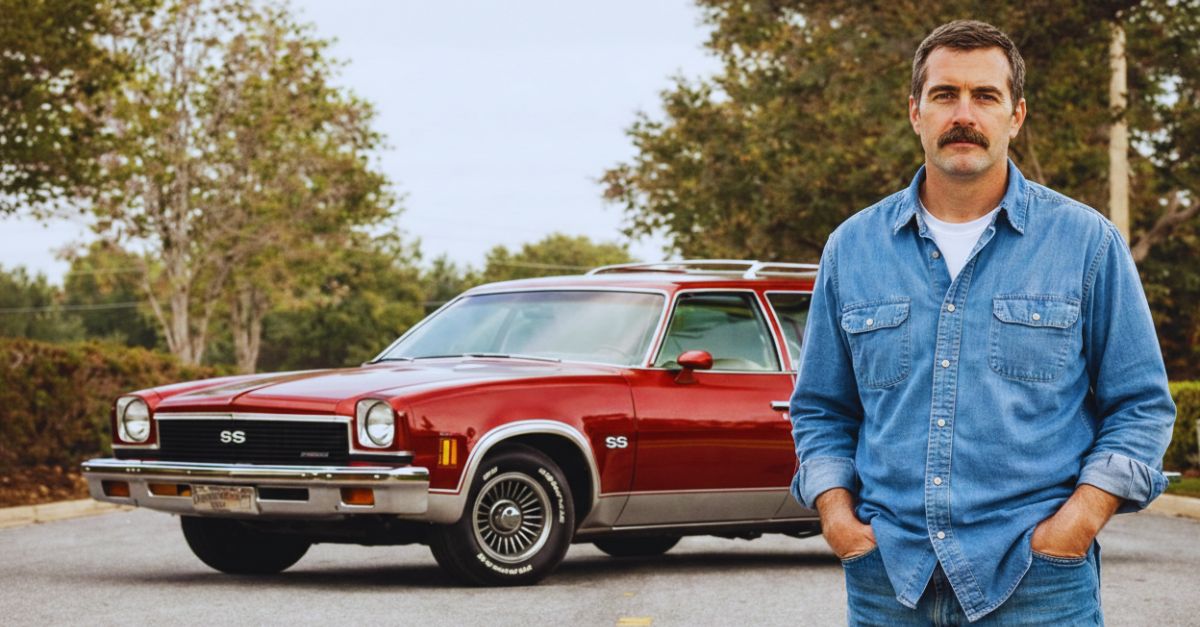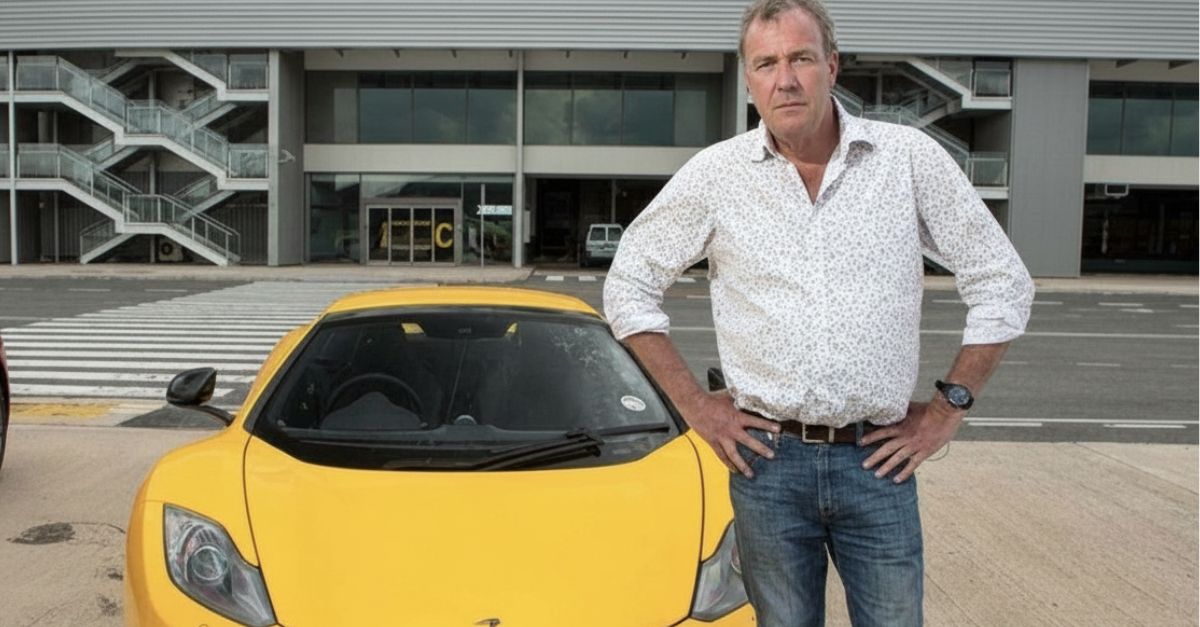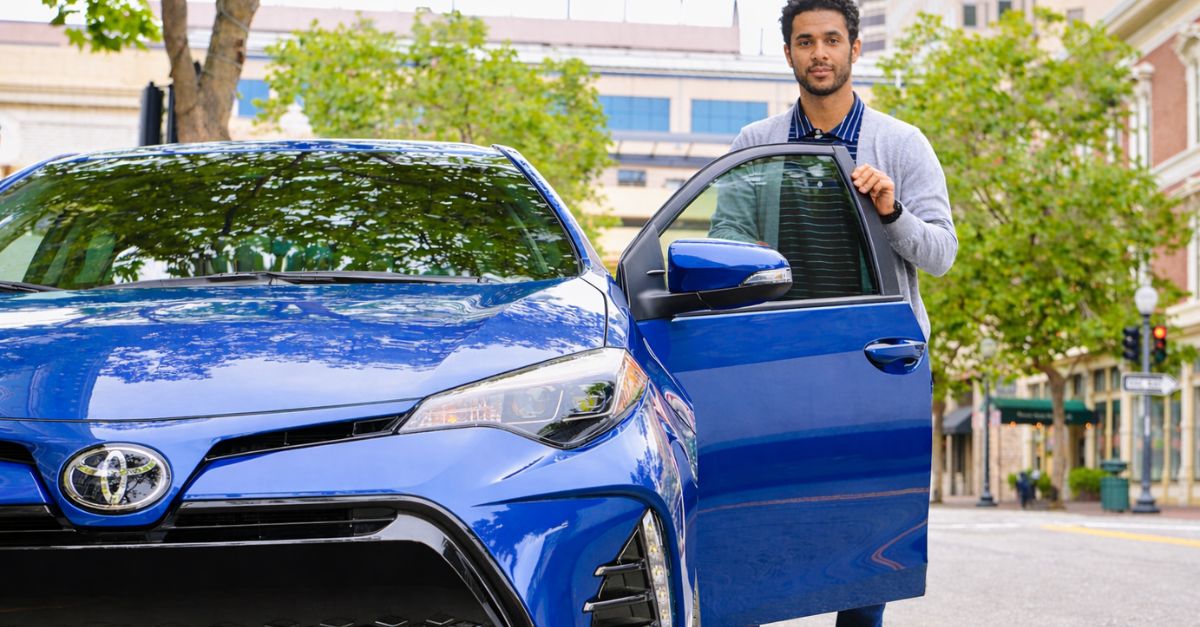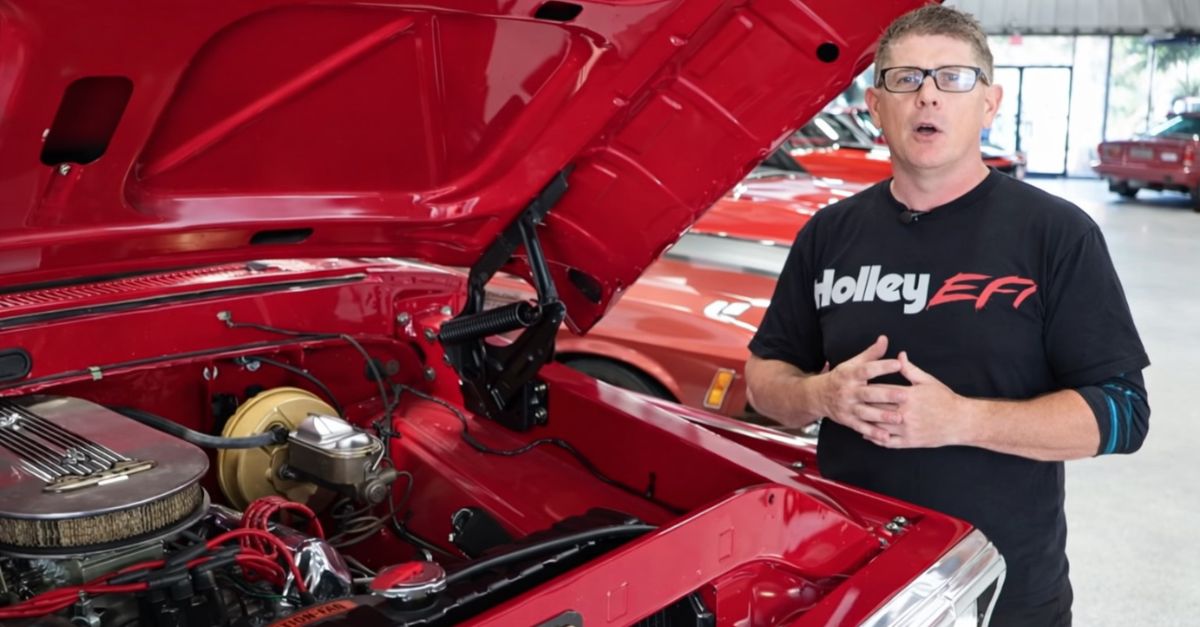Cars That'll Make You LOL On The Road
Some designers have ambitious dreams. It makes us wonder what they were thinking when they came up with these car designs. Let's look at some of the weirdest cars ever made.

Peel P50
No, it's not a toy. Listed as the smallest production car ever made by Guinness World Records, the Peel P50 was designed in 1962 as a city car accommodating one adult and a shopping bag. The original one had no reverse gear, and today, there's a popular electric model.
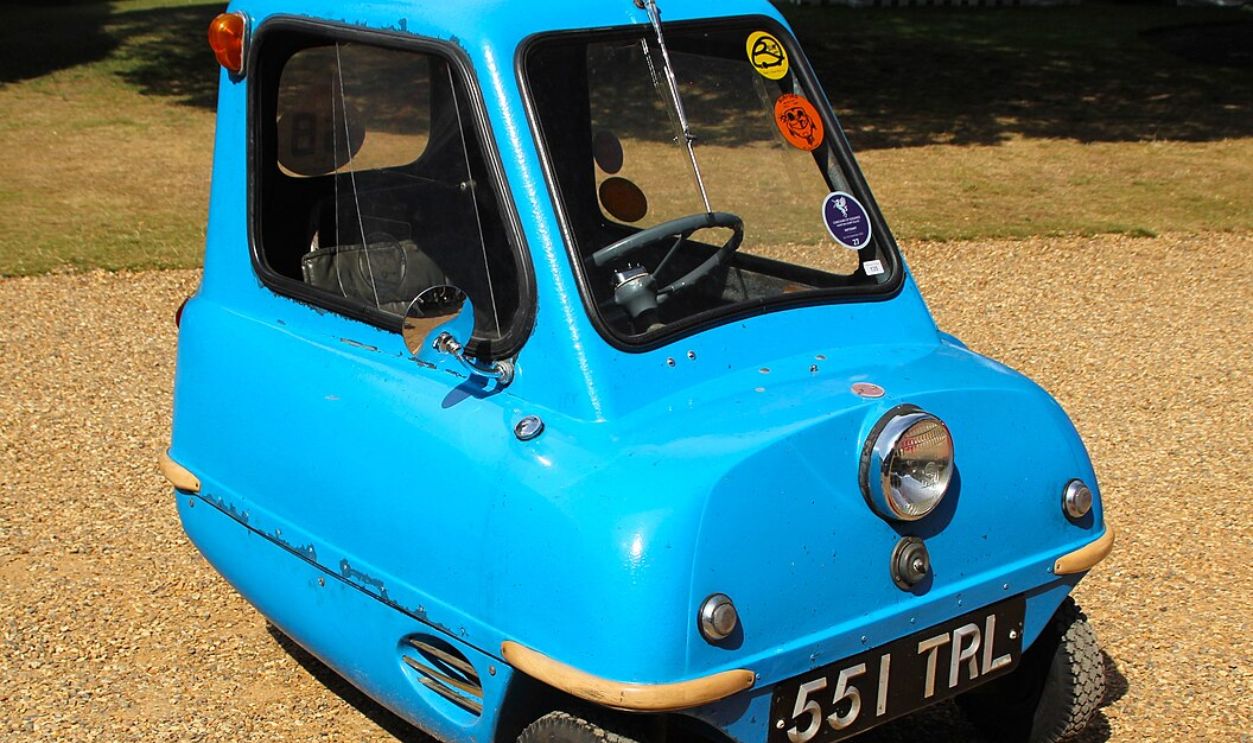 MrWalkr, CC BY-SA 4.0, Wikimedia Commons
MrWalkr, CC BY-SA 4.0, Wikimedia Commons
Stout Scarab
Some people consider the Stout Scarab the world's first minivan. It had a streamlined, beetle-like design and a spacious interior with a movable table and chairs. But just think of how hard it is to find parking spots if several people owned this vehicle in your neighborhood.
Ferrari Modulo
Practice some flexibility moves if you want to get into the Ferrari Modulo. Paolo Martin designed it as a concept car in 1970 with a spaceship-like design, a low, wedge-shaped body, and a canopy-style roof. Its current owner, James Glickenhaus, made it road-legal, and it appeared at various automotive events.
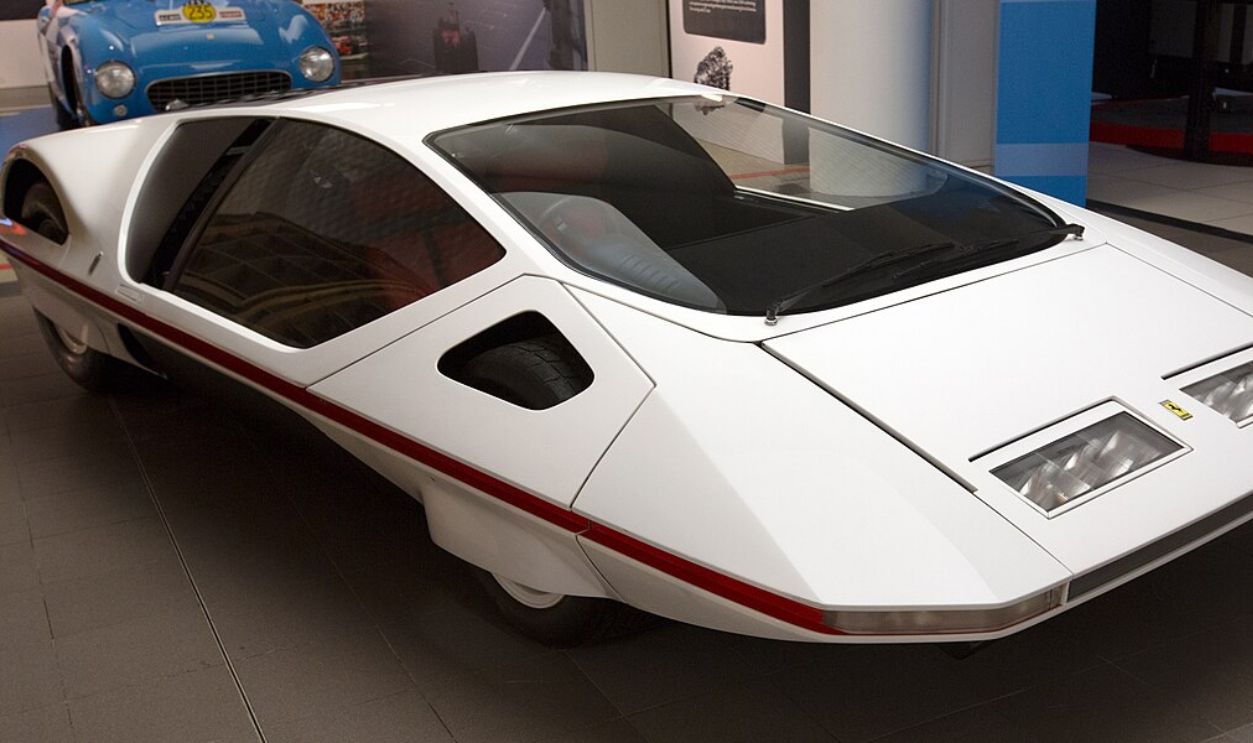 Morio, CC BY-SA 3.0, Wikimedia Commons
Morio, CC BY-SA 3.0, Wikimedia Commons
BMW Isetta
Can you believe that this was one of the most successful microcars, with over 161,000 units sold between 1955 and 1961? The BMW Isetta was a microcar with a bubble-like design, notable for its single front door that swings open to allow entry to the cabin.
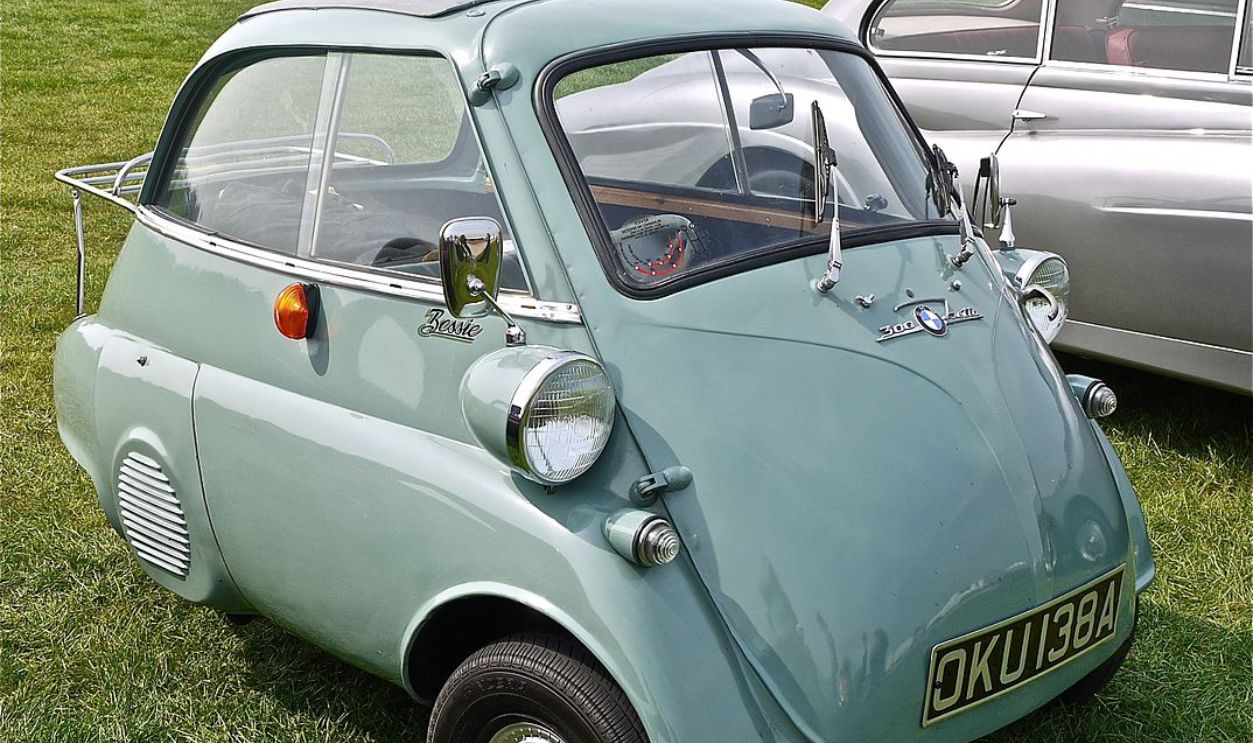 Mick, CC BY 2.0, Wikimedia Commons
Mick, CC BY 2.0, Wikimedia Commons
Vision Mercedes Simplex
In 2019, Mercedes designed the Vision Mercedes Simplex inspired by the 1901 race car that carried the Mercedes name for the first time. Looking like Cinderella's carriage, it featured a digital display but kept the motor low in the chassis. Unless you're the fairy godmother, you'll find it too impractical.
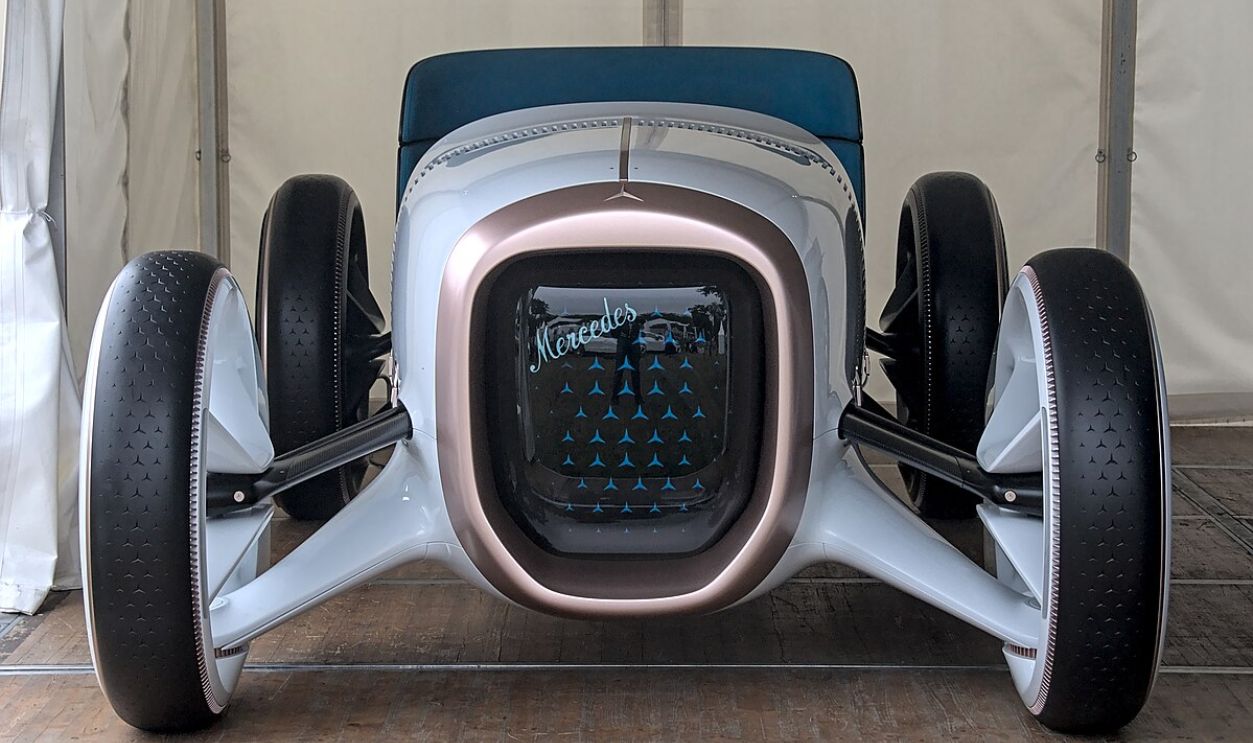 Alexander Migl, CC BY-SA 4.0, Wikimedia Commons
Alexander Migl, CC BY-SA 4.0, Wikimedia Commons
Cadillac Cyclone
In 1959, Cadillac built the Cyclone as a concept car with a bubble canopy, radar-based crash avoidance system, and hidden headlights. It was heavily influenced by the space age, but consumers didn't share the company's vision, and it was deemed too advanced for the time.
Messerschmitt KR200
Despite the quirky design, more than 41,000 units of the Messerschmitt KR200 were built between 1955 and 1964. People were fans of the three-wheeled microcar, originally designed as a vehicle for the disabled. Its aircraft-style bubble canopy and tandem seating gave it a unique appearance.
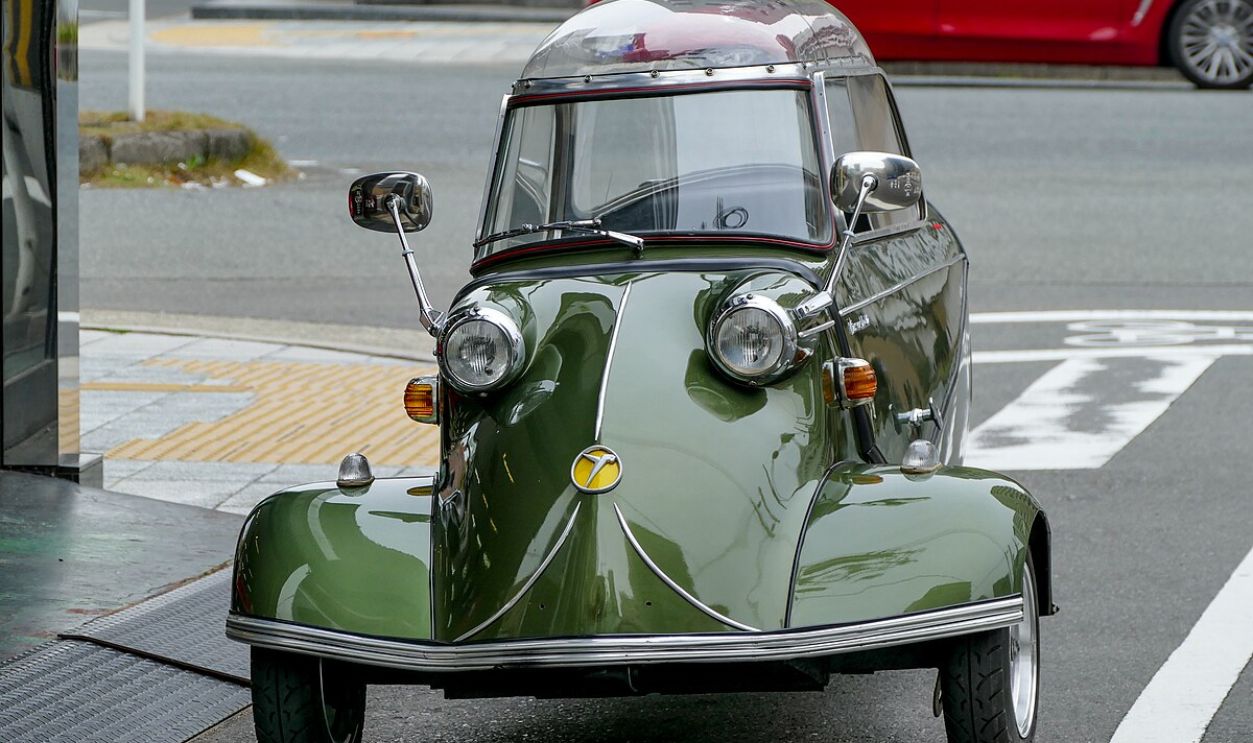 Jin Kemoole, CC BY 2.0, Wikimedia Commons
Jin Kemoole, CC BY 2.0, Wikimedia Commons
Vanguard Sebring CitiCar
In response to the fuel crisis, the Vanguard Sebring CitiCar was one of the first attempts to make an electric vehicle (EV). It had a maximum speed of 30 mph and a range of 40 miles. Its weird, frog-like front did not stop it from becoming the best-selling EV in the mid-1970s.
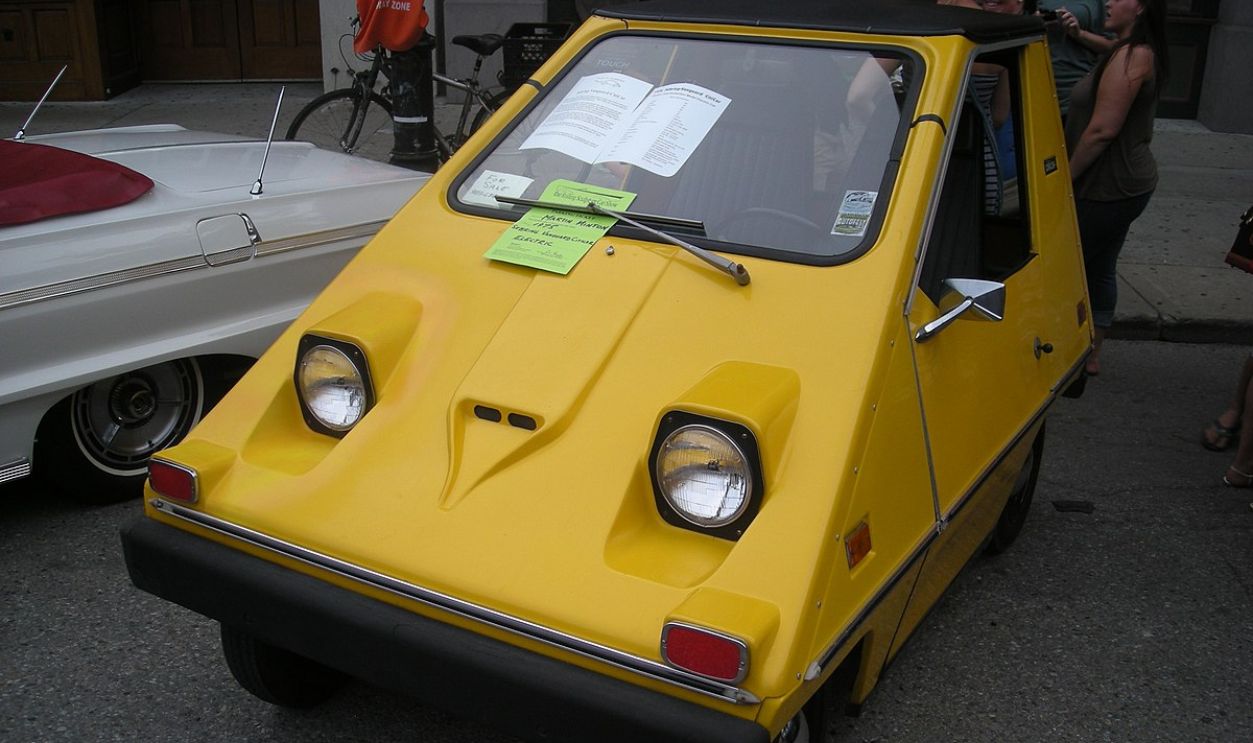 Michael Barera, CC BY-SA 4.0, Wikimedia Commons
Michael Barera, CC BY-SA 4.0, Wikimedia Commons
Bond Bug
Bond Cars Ltd. manufactured more than 2270 units of the Bond Bug between 1970 and 1974. It was a three-wheeled frog-inspired microcar with a wedge shape and a canopy door that opened upwards. Its bright orange color and quirky design made it a symbol of 1970s British motoring.
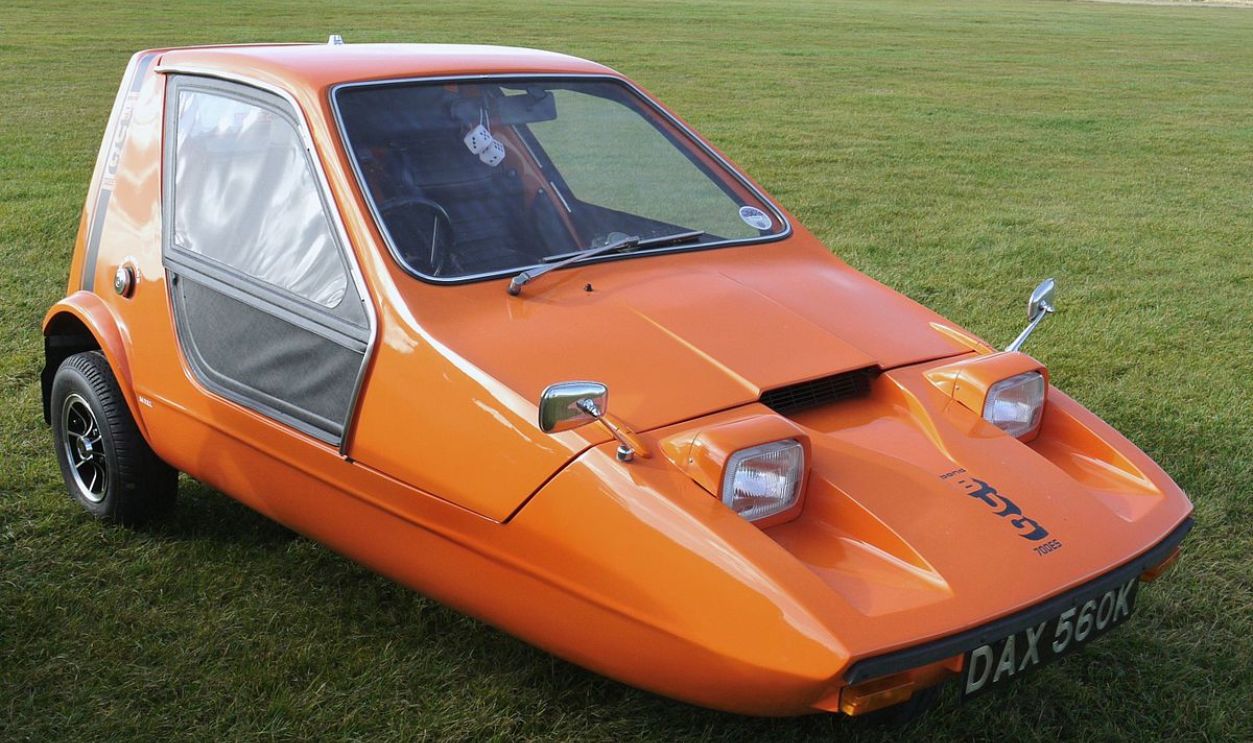 Mick, CC BY 2.0, Wikimedia Commons
Mick, CC BY 2.0, Wikimedia Commons
Lotus Esprit S1 Sports
You can never go wrong with a James Bond car, right? You can probably recognize the Lotus Esprit S1 Sports from the underwater scenes in The Spy Who Loved Me. Apart from the movie, 718 units were made with a fiberglass body that made it lightweight but prone to cracking.
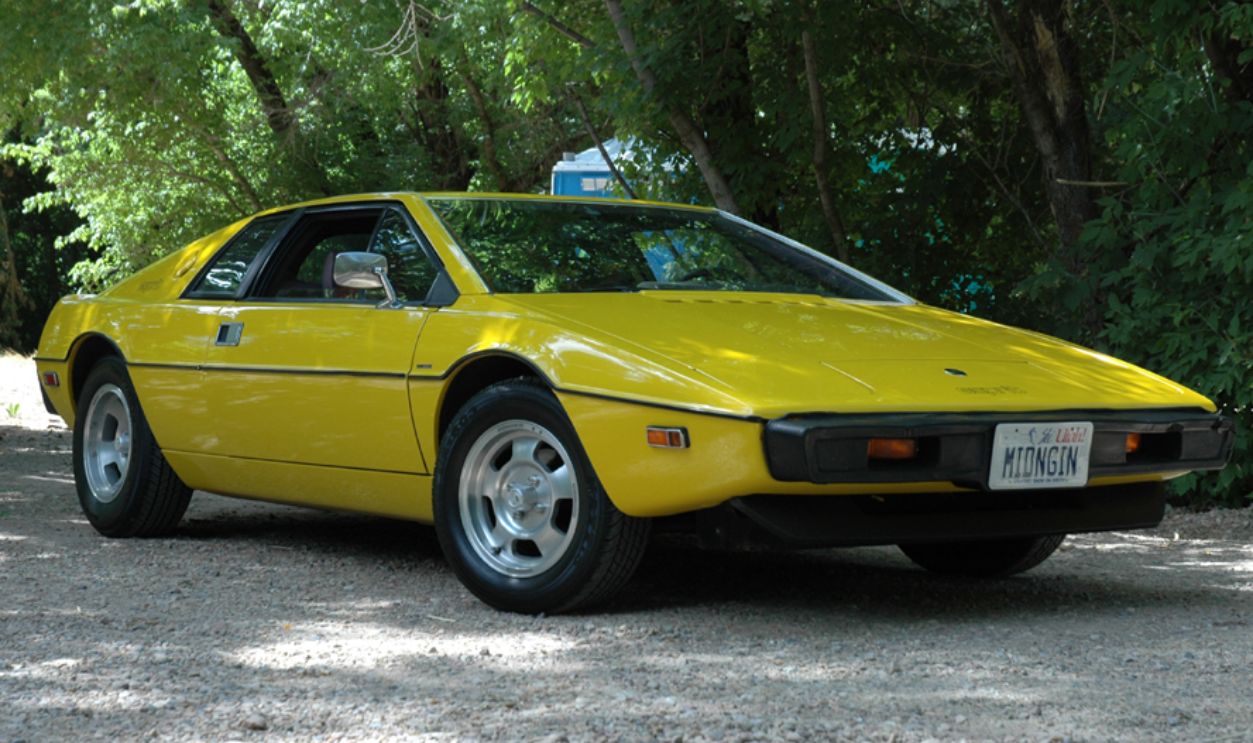 Jeff Greenland, Wikimedia Commons
Jeff Greenland, Wikimedia Commons
Chevrolet El Camino
As a unique blend, the Chevrolet El Camino was known as a coupe utility vehicle. It had the front end of a car with the bed of a pickup truck in an unexpected combo. This meant it wasn't as practical as a truck nor as comfortable as a car. The worst of both worlds.
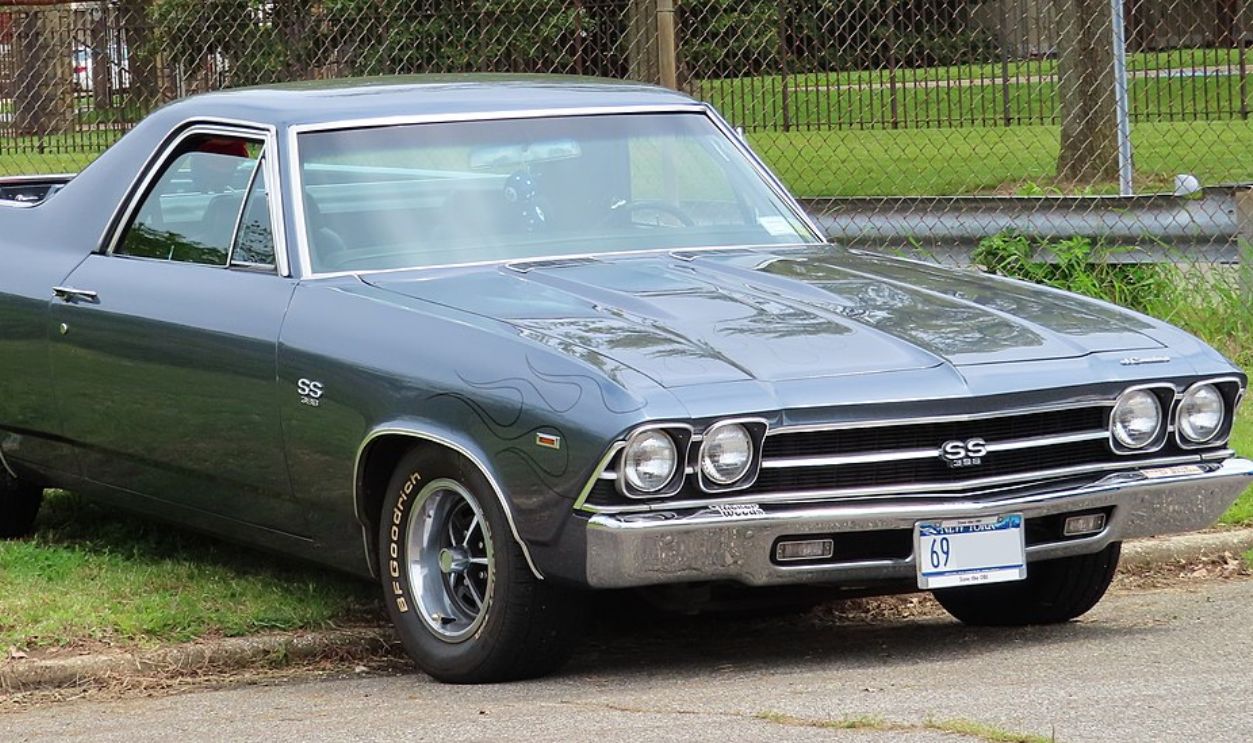 Kevauto, CC BY-SA 4.0, Wikimedia Commons
Kevauto, CC BY-SA 4.0, Wikimedia Commons
Dymaxion Car
Three prototypes were made of the Dymaxion car—a teardrop-shaped, three-wheeled vehicle designed to be aerodynamic and fuel-efficient. It was intended to be a part of a larger vision for sustainable urban transport. However, a fatal accident during a demonstration damaged its reputation, and stopped whatever it could've been.
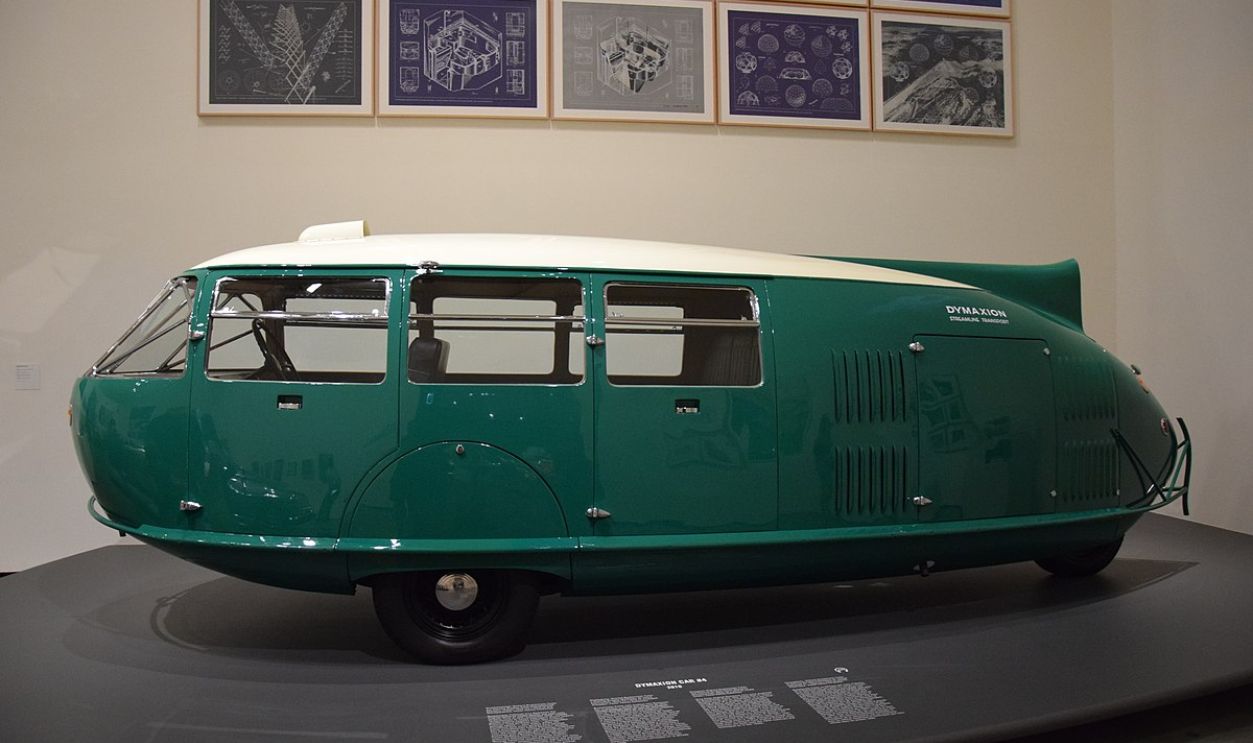 Chatsam, CC BY-SA 3.0, Wikimedia Commons
Chatsam, CC BY-SA 3.0, Wikimedia Commons
Pontiac Firebird
This car belongs to a family of jet-inspired concept cars, each featuring a gas turbine engine and futuristic design. The Firebird I, II, III, and IV were developed as experiments in advanced automotive technology. But as it turns out, not a lot wanted to ride planes on roads.
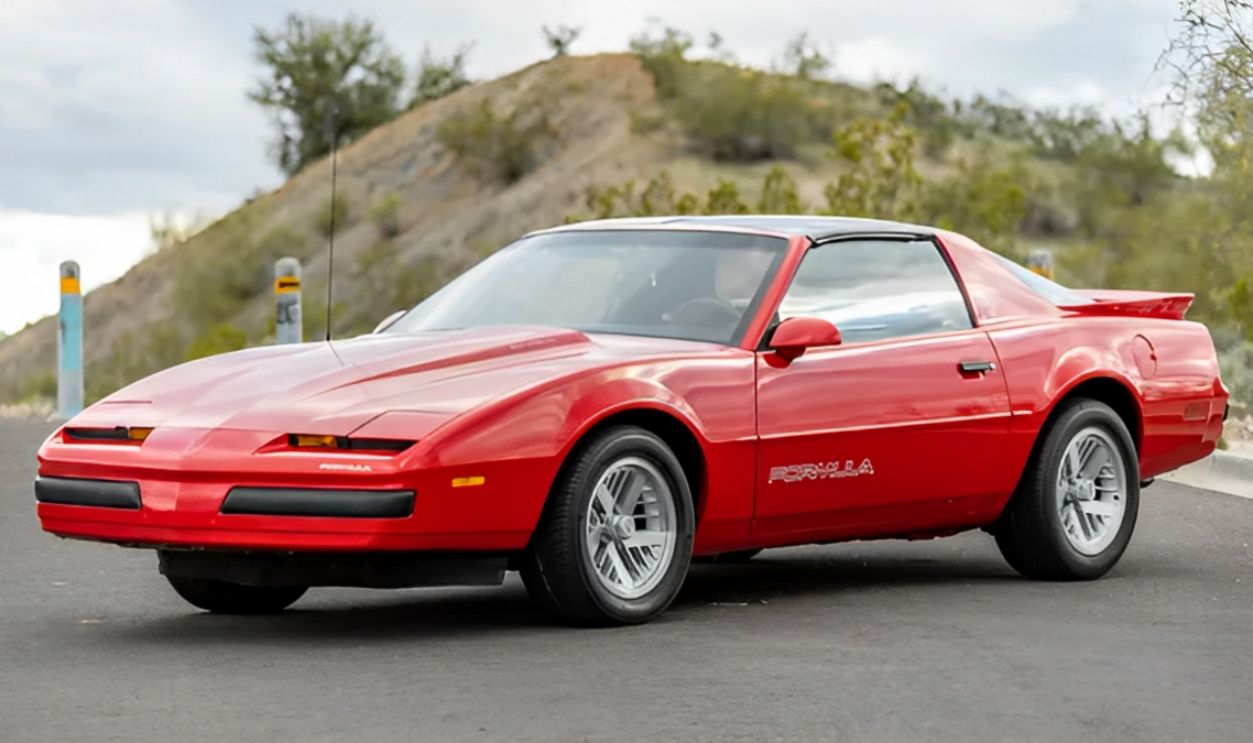 Ndezonia, CC0, Wikimedia Commons
Ndezonia, CC0, Wikimedia Commons
Rinspeed sQuba
In 2008, Rinspeed successfully designed the first zero-emission EV that could be driven on land and underwater. It was inspired by the underwater Lotus Esprit from The Spy Who Loved Me movie; sounds like a dream come true, right? That's too bad, because it was very complex and expensive for commercial production.
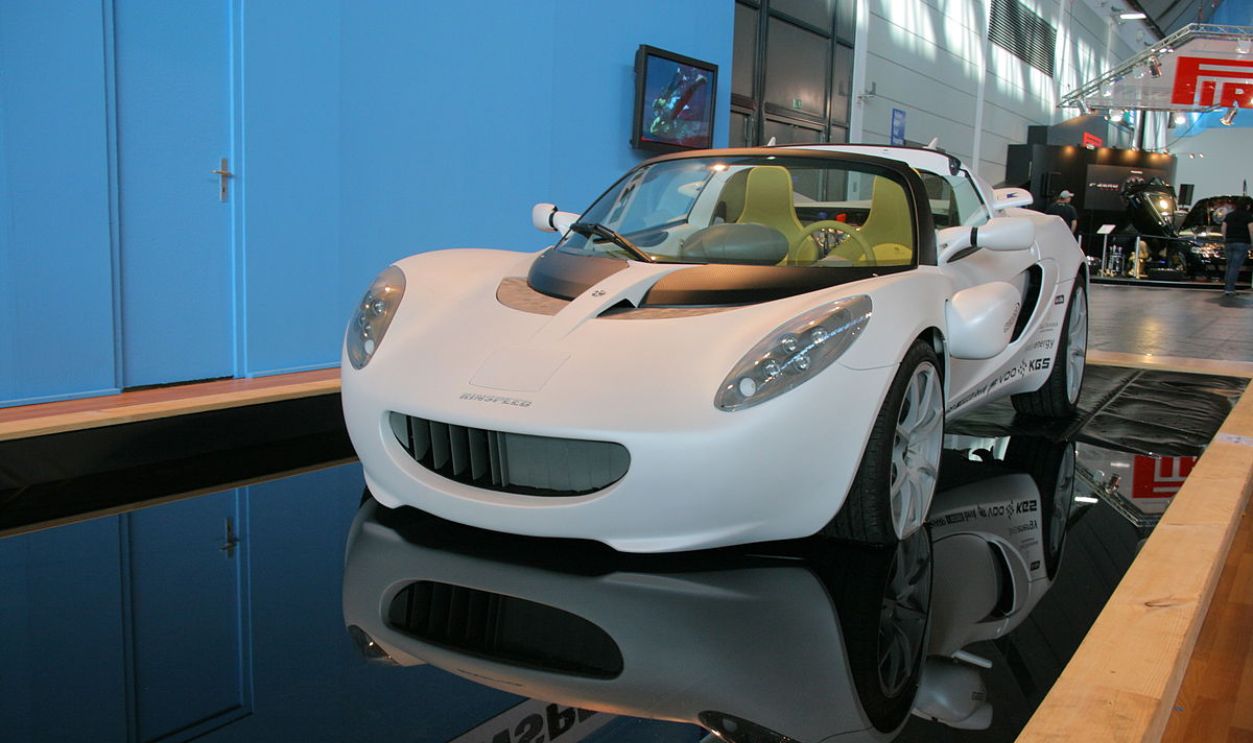 Stefan-Xp, CC BY-SA 3.0, Wikimedia Commons
Stefan-Xp, CC BY-SA 3.0, Wikimedia Commons
BMW Gina
Can you imagine a car that could change its shape? BMW made the Gina in 2008 after 7 years of working on the design. Its flexible textile outer shell allowed the car to morph its body panels and control surfaces and adapt to different driving conditions and user preferences.
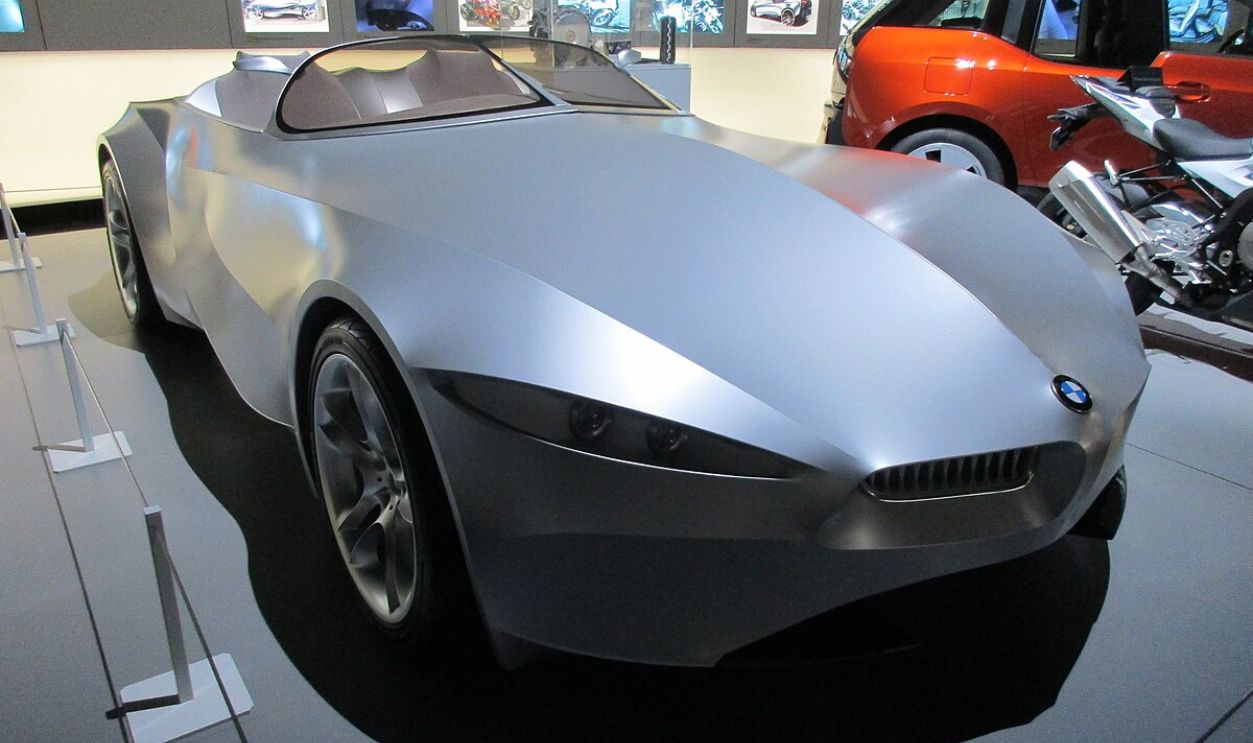 Arnaud 25, CC BY-SA 4.0, Wikimedia Commons
Arnaud 25, CC BY-SA 4.0, Wikimedia Commons
Limo Jet
The Limo Jet is exactly what it sounds like—a limousine built inside a private jet. This unique vehicle is 42 feet long and features luxury interiors, LED lights, and a sound system. It's custom-built and can be rented for celebrity appearances. So, order one for your next red carpet event.
Pea Car
Is it a pea? Is it a car? You'll never know. Utilizing a modified Volkswagen Beetle chassis, the Pea Car was built for marketing purposes to look like a giant pod of peas. It became a viral sensation in the UK, often appearing at food festivals and events.
Oscar Mayer Wienermobile
No, this isn't made to be eaten. Six units of the unique Oscar Mayer Wienermobile are still roaming the roads but the original one was built in the 1930s and looked like a hot dog on a bun. It's become a pop culture icon, featured in parades and television shows.
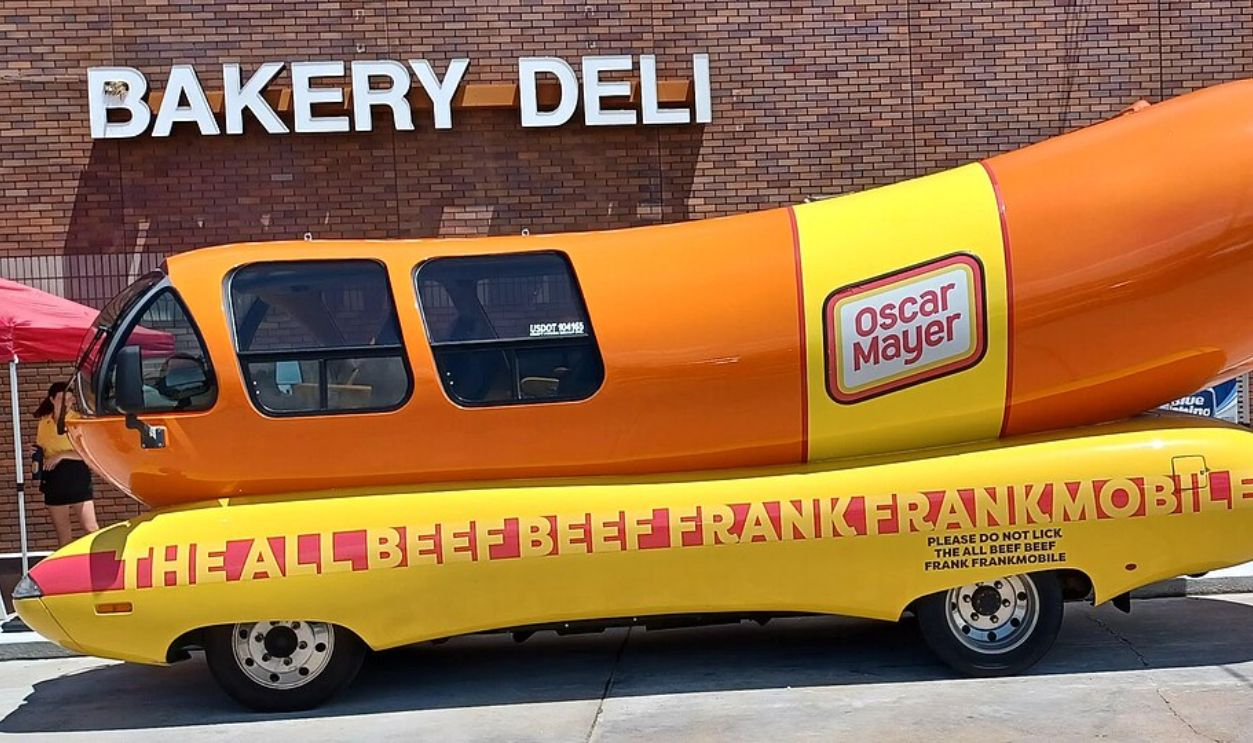 TheDoctorWho, CC BY-SA 4.0, Wikimedia Commons
TheDoctorWho, CC BY-SA 4.0, Wikimedia Commons
Faraday Future FF 91
Faraday Future made this all-electric luxury SUV with highly advanced technology. This ambitious vehicle features facial recognition entry, autonomous driving capabilities, and a savvy infotainment system. However, it faced production delays and financial challenges. So, would you still trust this car?
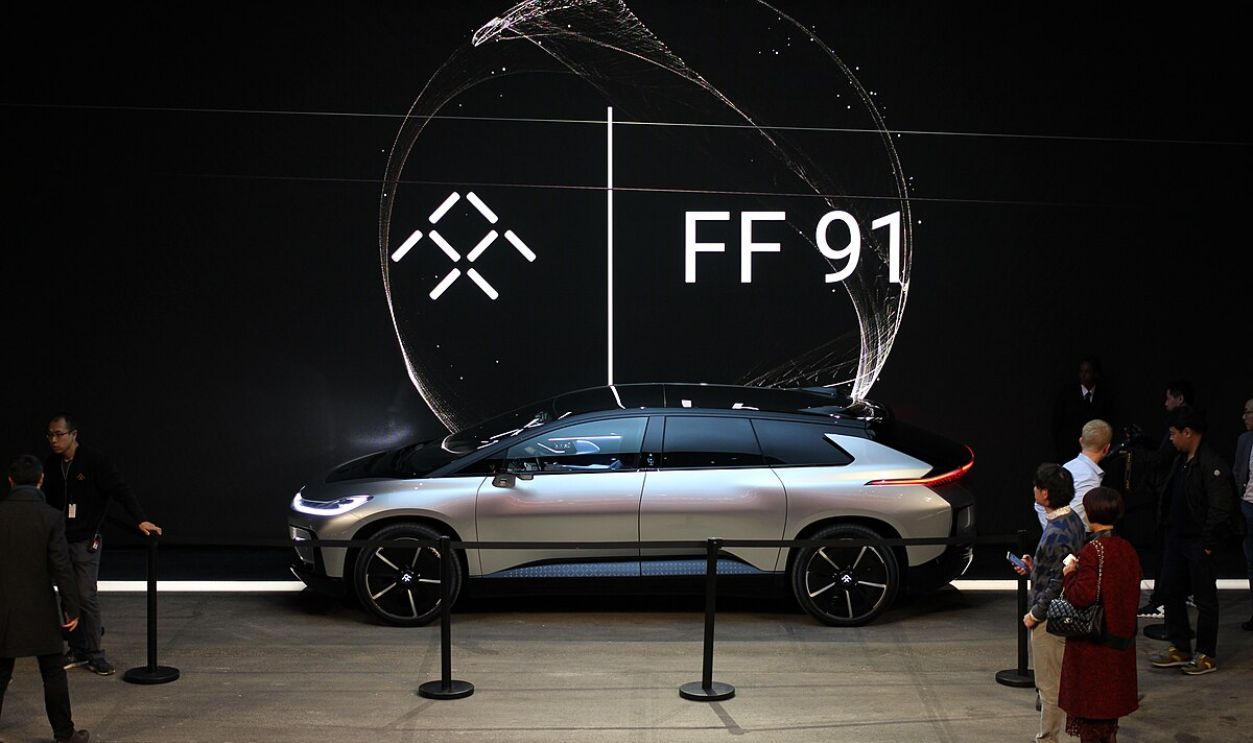 Maurizio Pesce, CC BY 2.0, Wikimedia Commons
Maurizio Pesce, CC BY 2.0, Wikimedia Commons
Leyat Hélica
Heard of the plane without wings? The Leyat Hélica was built in the 1920s, powered by a giant propeller at the front. It was inspired by aviation and designed to be lightweight and aerodynamic. Nevertheless, the propeller-driven design made the Hélica difficult to control and potentially dangerous, especially for pedestrians.
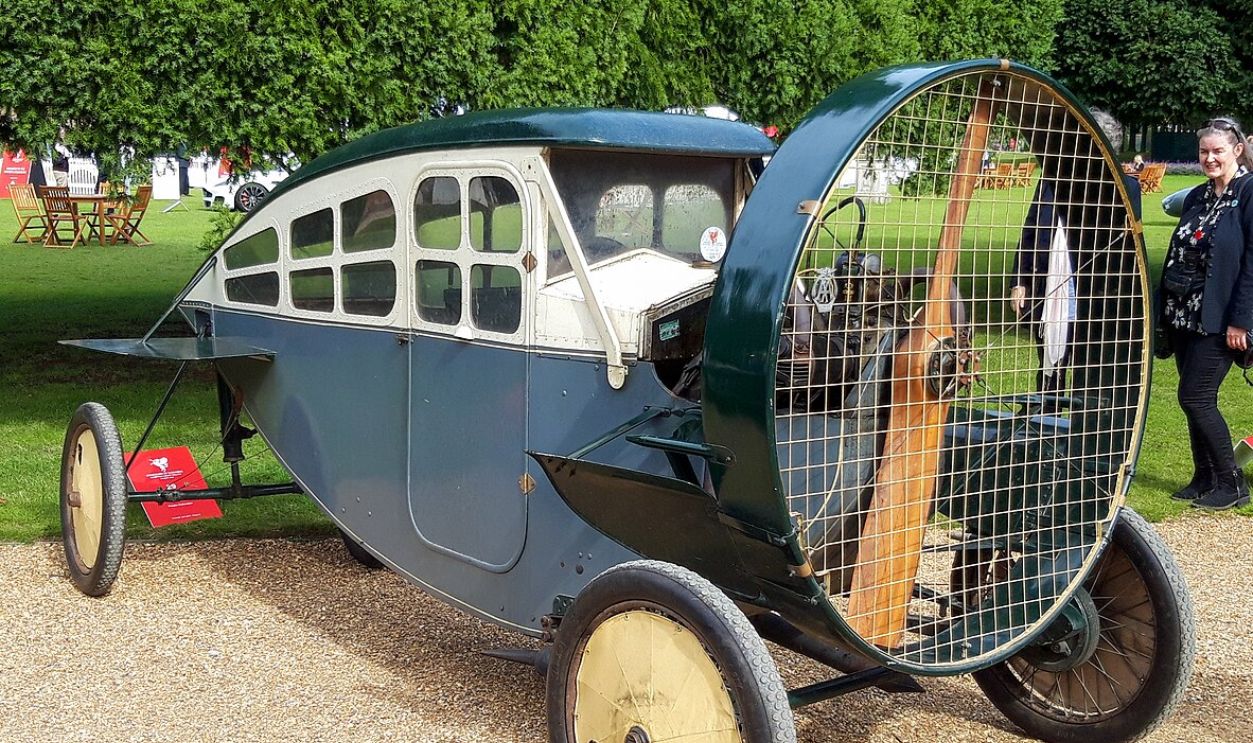 Liam Walker, CC BY-SA 4.0, Wikimedia Commons
Liam Walker, CC BY-SA 4.0, Wikimedia Commons
Austin Mini Moke
Originally designed for military use, the Austin Mini Moke ended up as a leisure vehicle, popular in beach resorts. It was a small, lightweight, open-top vehicle, but its lack of weather protection and minimal safety features made it impractical for regular road use.
AMC Gremlin
Dick Teague sketched the AMC Gremlin on an air sickness bag during one of his flights. It was one of the first subcompact cars produced by an American manufacturer. But its unusual design, especially the abrupt rear end, was polarizing, even though more than 670,000 units were sold.
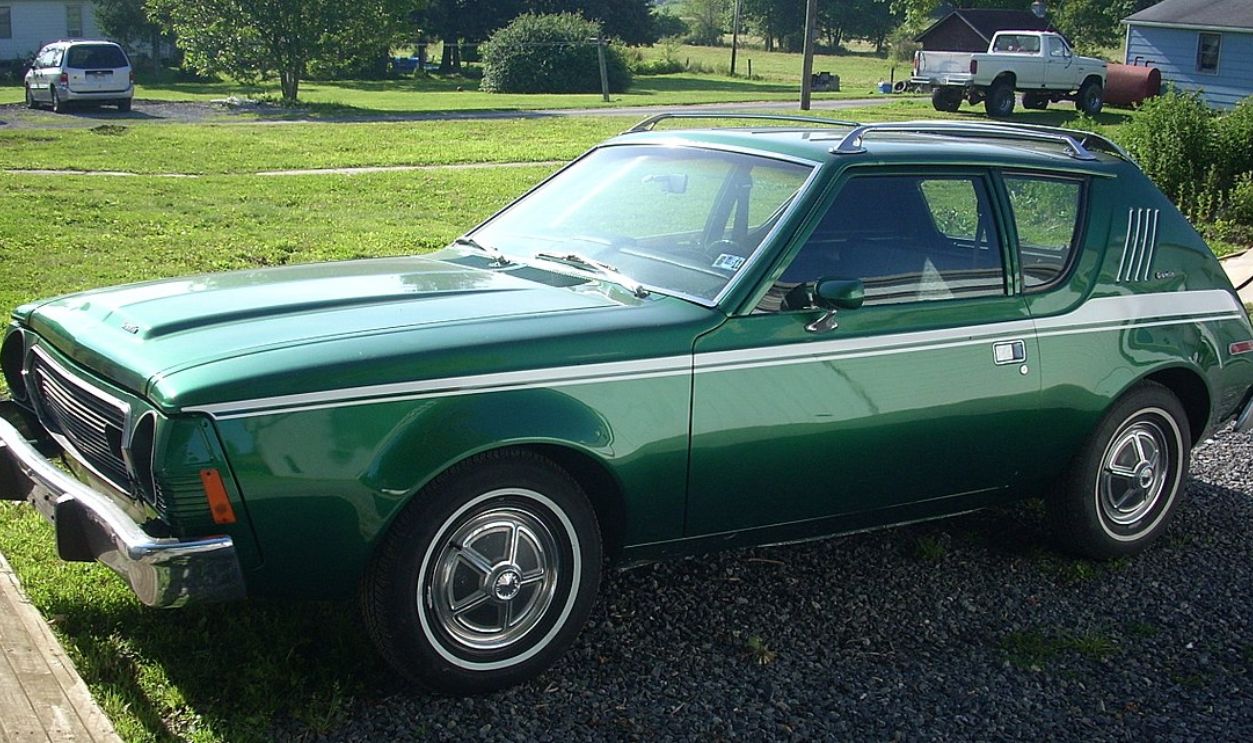 Gerry Dincher, CC BY-SA 2.0, Wikimedia Commons
Gerry Dincher, CC BY-SA 2.0, Wikimedia Commons
Fiat Multipla
Designed to cram six people, the Fiat Multipla had a wide, bulbous body and an extra row of lights below the windshield. It went into production in 1998, but its weird design made it the subject of jokes and ridicule, which overshadowed its practical interior layout.
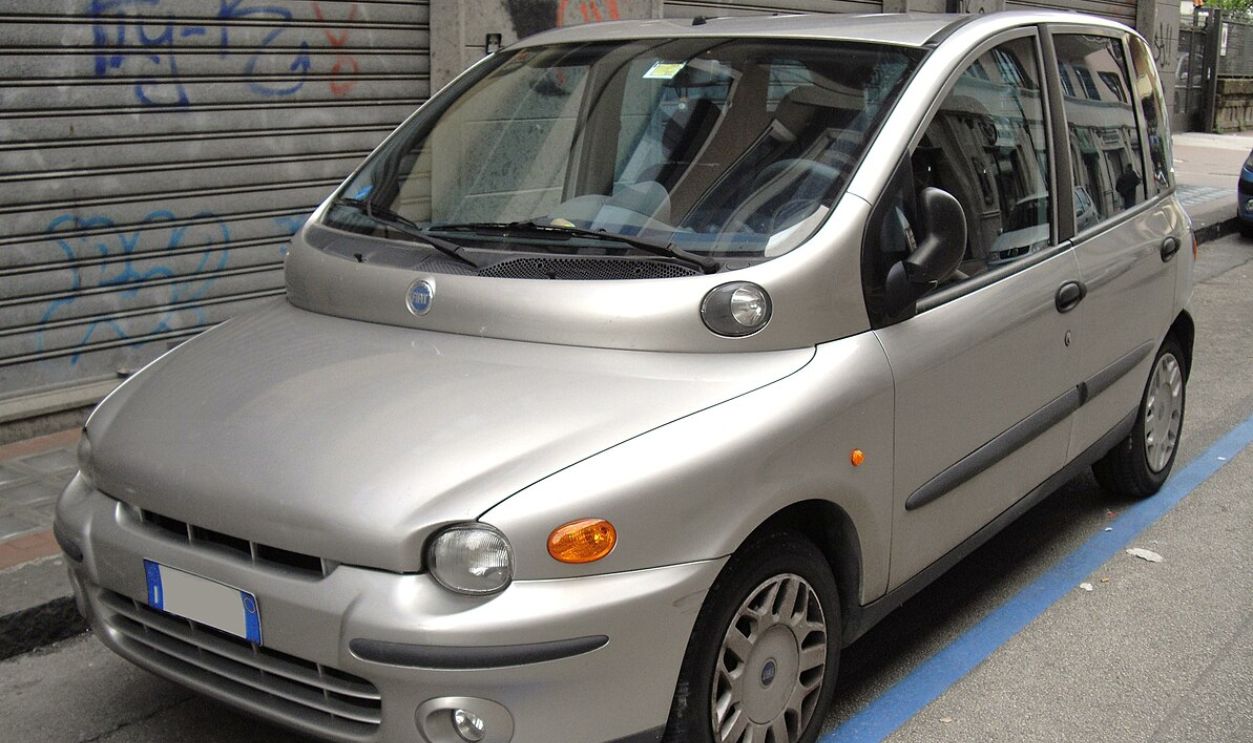 Corvettec6r, Wikimedia Commons
Corvettec6r, Wikimedia Commons
Aston Martin Cygnet
As a luxury city car, the Aston Martin Cygnet is essentially a rebadged and re-engineered Toyota iQ with Aston Martin's trademark styling and luxury features. It was designed to meet European emissions standards for the brand's fleet while providing a compact, city-friendly vehicle that just looked a bit weird.
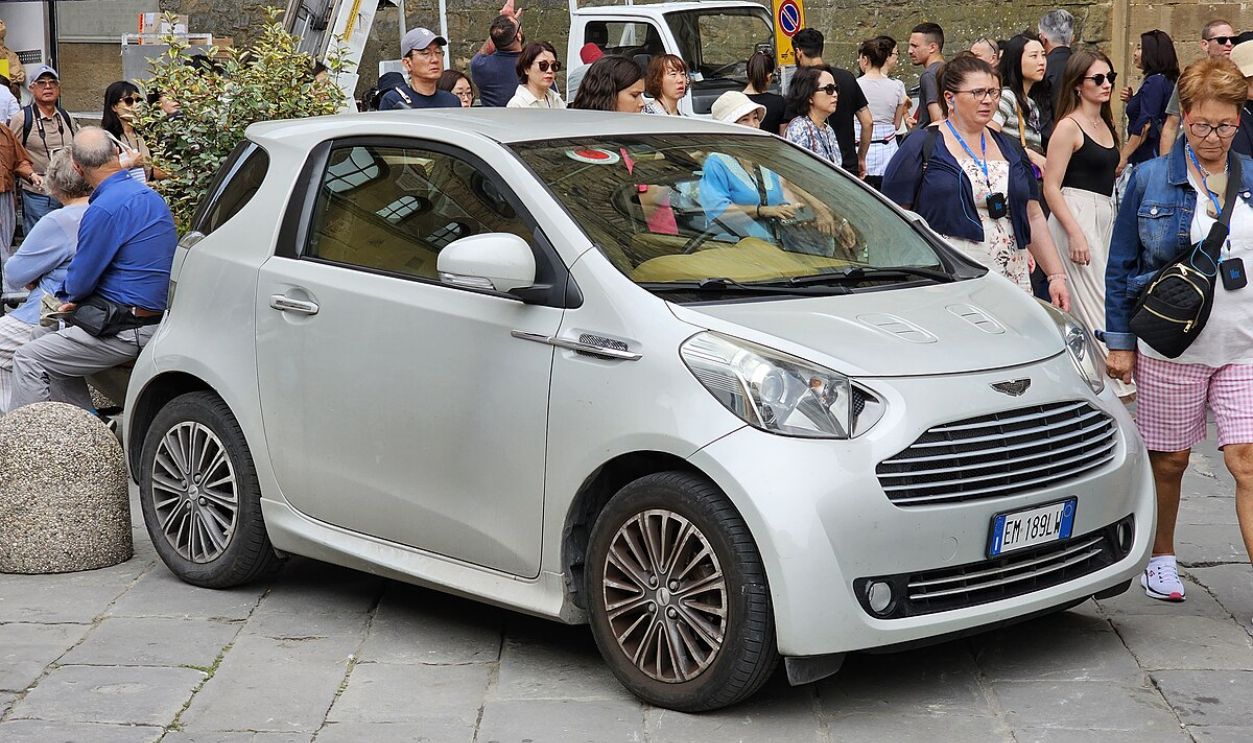 Damian B Oh, CC BY-SA 4.0, Wikimedia Commons
Damian B Oh, CC BY-SA 4.0, Wikimedia Commons
Cadillac Fleetwood 75
Often used as a limousine and executive car for the elite, the Cadillac Fleetwood 75 was a luxury symbol in the Cadillac lineup with a long wheelbase, elegant interiors, and the finest materials available at the time. But its large size made it less practical as fuel-efficient cars became popular.
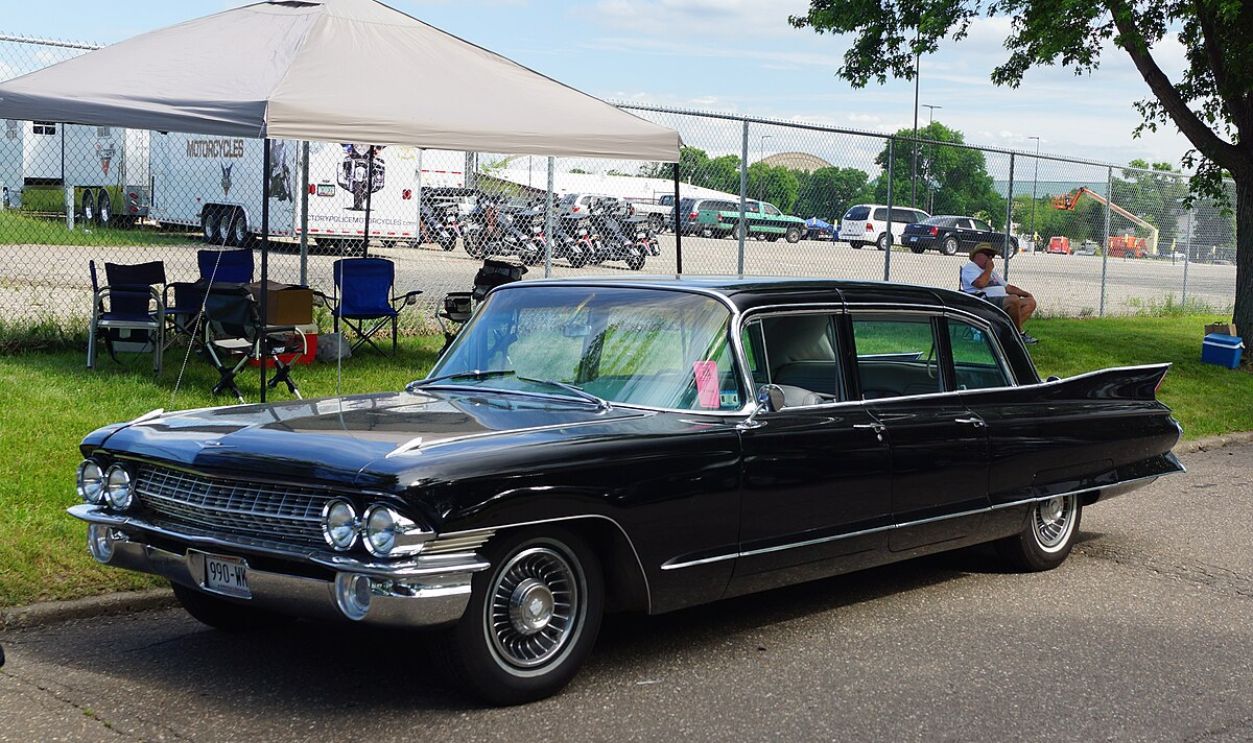 Greg Gjerdingen, CC BY 2.0, Wikimedia Commons
Greg Gjerdingen, CC BY 2.0, Wikimedia Commons
Popemobile
Since the 1930s, various car manufacturers have made custom-built vehicles to transport the Pope during public appearances. The Popemobile provides visibility to crowds while offering protection, often featuring bulletproof glass and a raised seating area. The most famous Popemobile is perhaps the Mercedes-Benz G-Class model used by Pope John Paul II.
Tesla Cybertruck
Although the Tesla Cybertruck was introduced as a concept car in 2019, its production started in 2023. It's an all-electric pickup truck with an angular spaceship-like design that stands out from other vehicles on the road. Maybe Elon Musk should just focus on social media rather than cars.
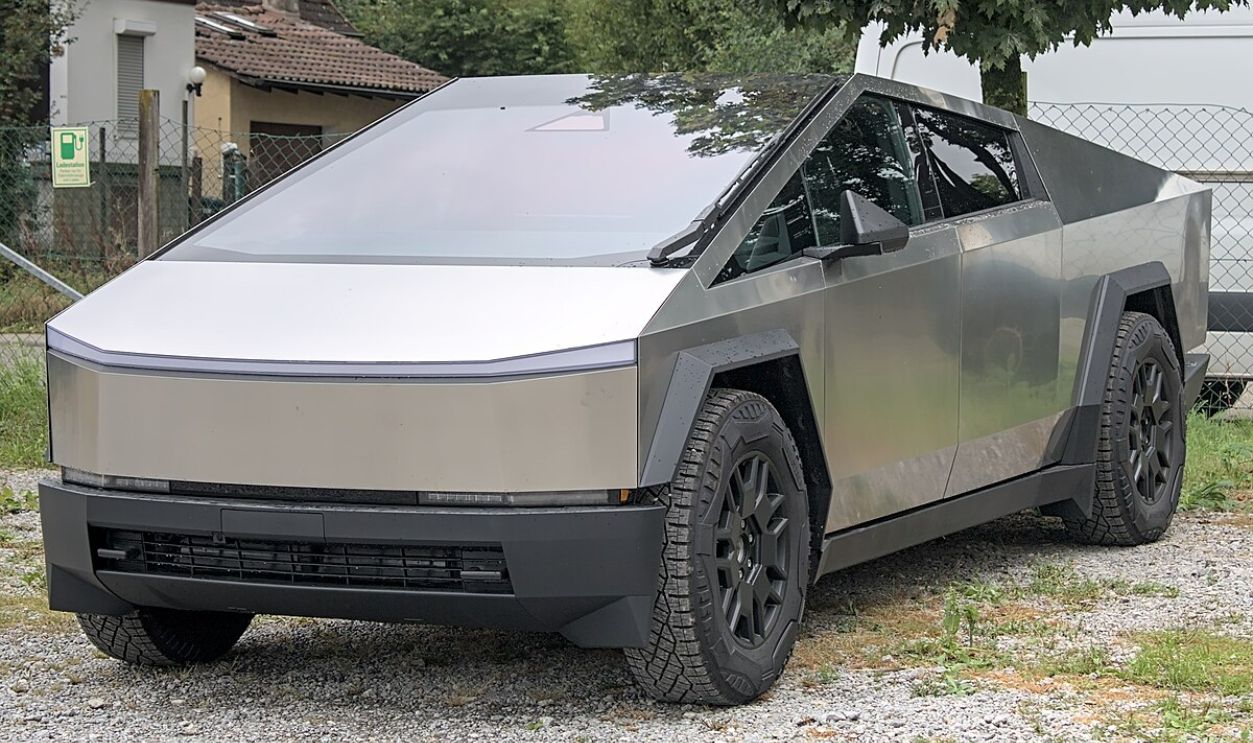 Alexander-93, CC BY-SA 4.0, Wikimedia Commons
Alexander-93, CC BY-SA 4.0, Wikimedia Commons
Electric Egg
The LŒuf électrique, or electric egg, is a lightweight aluminum and Plexiglas prototype produced in 1942. It was designed during World War II when fuel shortages prompted the exploration of alternative energy vehicles. However, the funny-looking egg lacked the range and performance needed for widespread use.
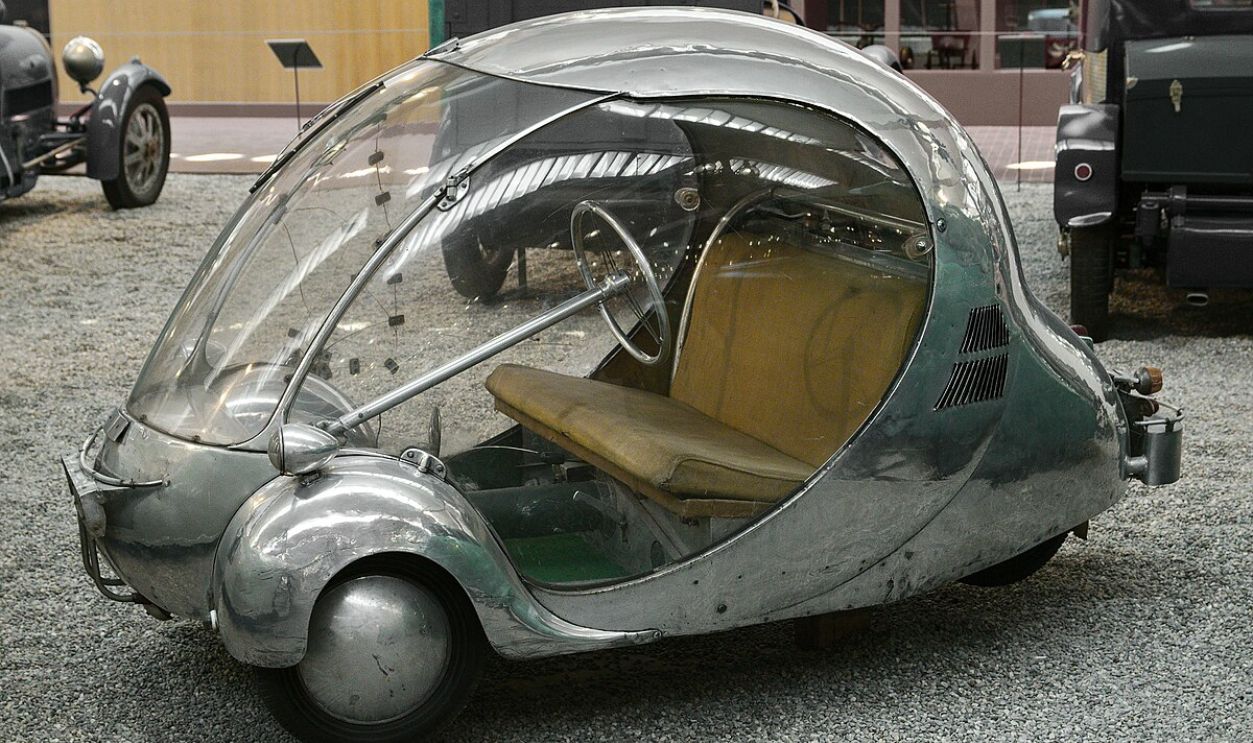 Rob Oo from NL, CC BY 2.0, Wikimedia Commons
Rob Oo from NL, CC BY 2.0, Wikimedia Commons
Plymouth Prowler
Inspired by the 1930s roadsters, the Plymouth Prowler was a retro-style vehicle produced in 1997. It featured an aluminum frame and open front wheels. Yet, the limited cargo space was a big turn-off as 2000's people are more into big cargo spaces.
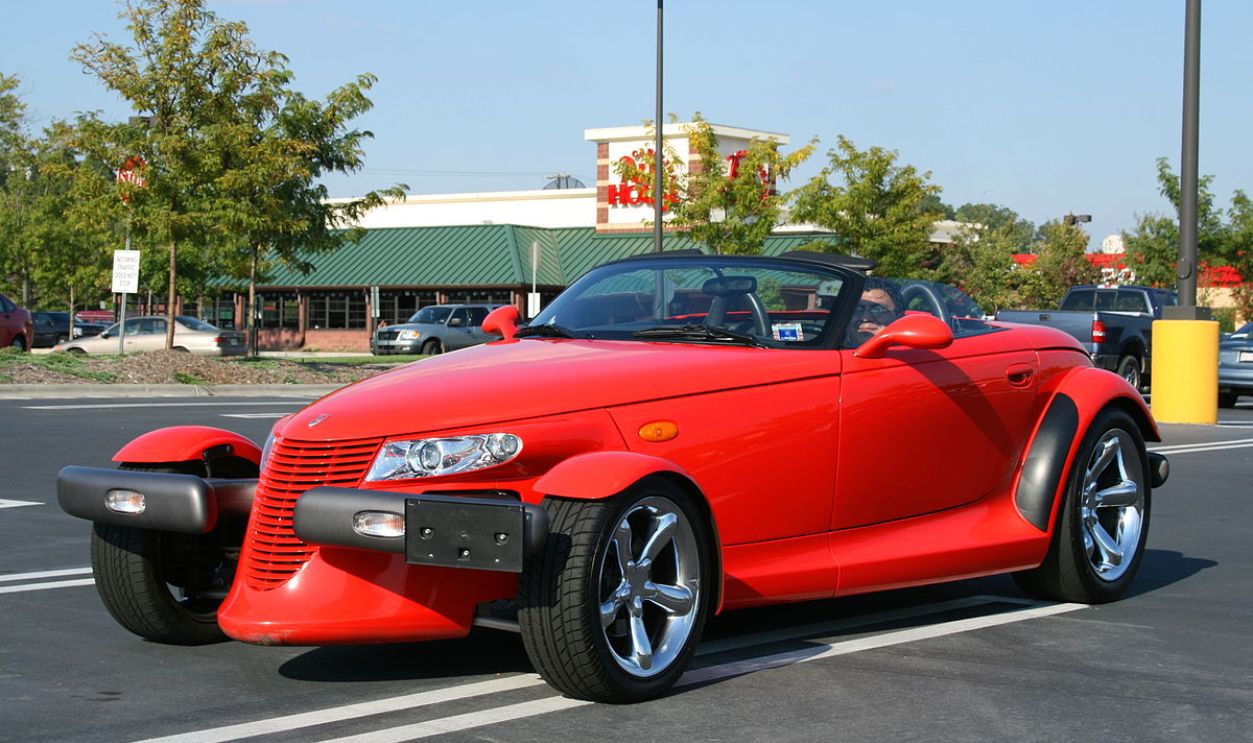 Ildar Sagdejev (Specious), CC BY-SA 4.0, Wikimedia Commons
Ildar Sagdejev (Specious), CC BY-SA 4.0, Wikimedia Commons
Nissan S-Cargo
Inspired by the Citroën 2CV, the Nissan S-Cargo was a small van with a retro design. Its quirky, snail-like shape and utilitarian interior made it a standout in Nissan's Pike series of niche vehicles. Do you also think it'll be perfect for Amazon and FedEx's delivery partners?
 Tennen-Gas, CC BY-SA 3.0, Wikimedia Commons
Tennen-Gas, CC BY-SA 3.0, Wikimedia Commons
Amphicar Model 770
Want to explore the unknown? Combining design elements from the Volkswagen Schwimmwagen and the Trippel SG6, the Amphicar Model 770 is a unique amphibious car capable of driving on land and navigating waterways. It featured a propeller and a watertight body, which made it a true dual-purpose vehicle.
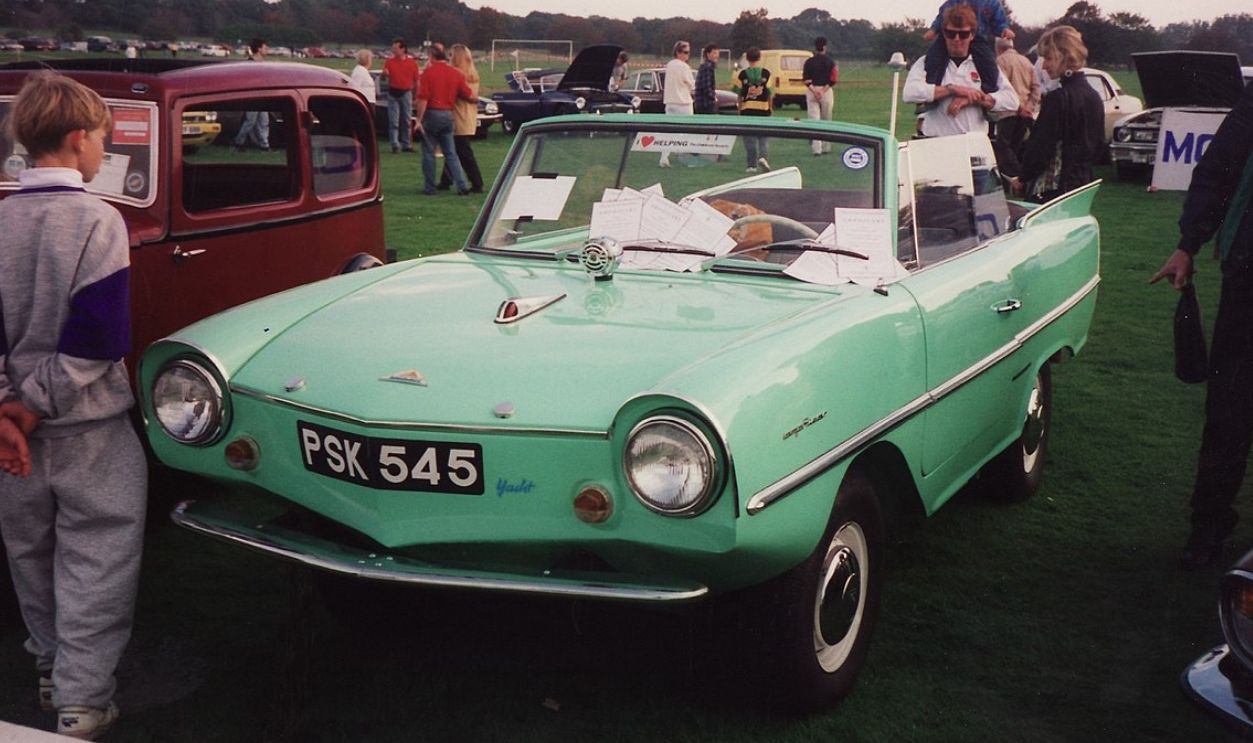 Andrew Bone, CC BY 2.0, Wikimedia Commons
Andrew Bone, CC BY 2.0, Wikimedia Commons
Davis Divan
What started as an ambitious dream turned into a nightmare when Gary Davis designed the 1947 Davis Divan. It was a three-wheeled car and could seat four passengers. However, he failed to pay his employees or deliver cars to dealerships on time, and his assets were liquidated.
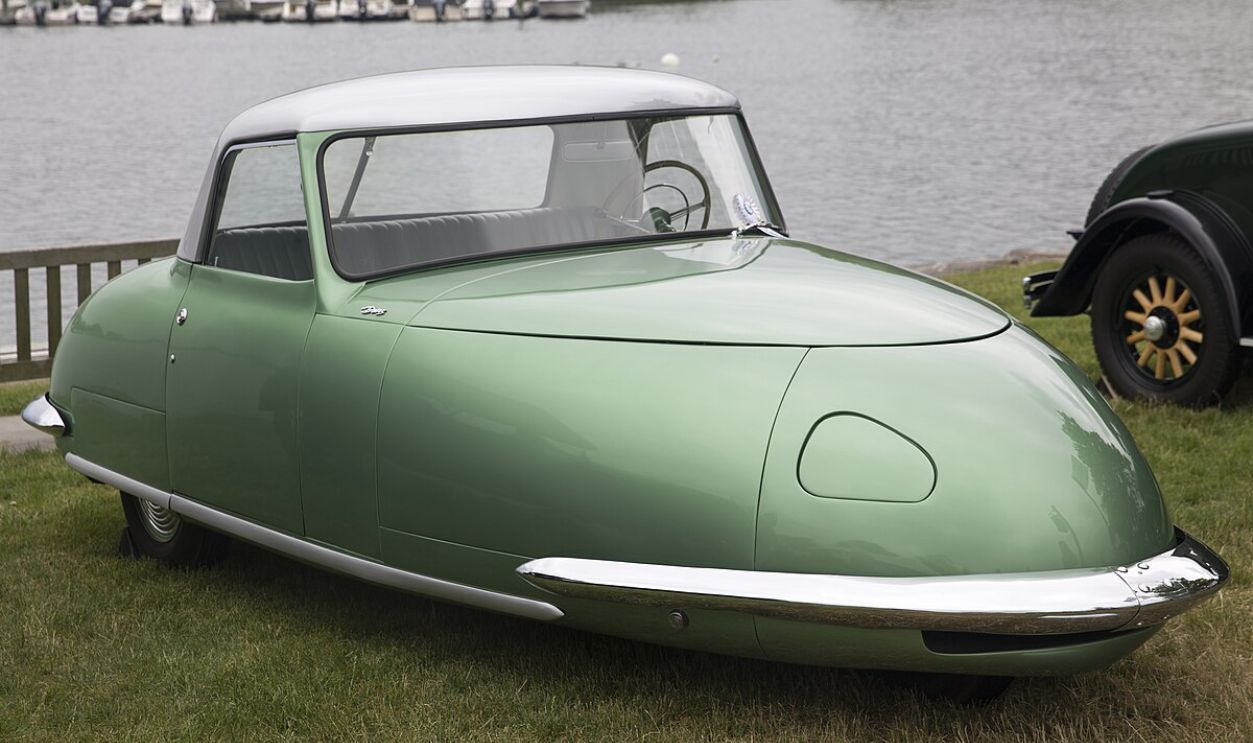 Mr.choppers, CC BY-SA 3.0, Wikimedia Commons
Mr.choppers, CC BY-SA 3.0, Wikimedia Commons
Reliant Robin
Why not enjoy the comfort of a car and the freedom of a motorbike? English automaker Reliant Motor Company produced the affordable three-wheeled Reliant Robin in 1973 with many generations over 30 years. It was lightweight, unstable, and subjected to a million jokes.
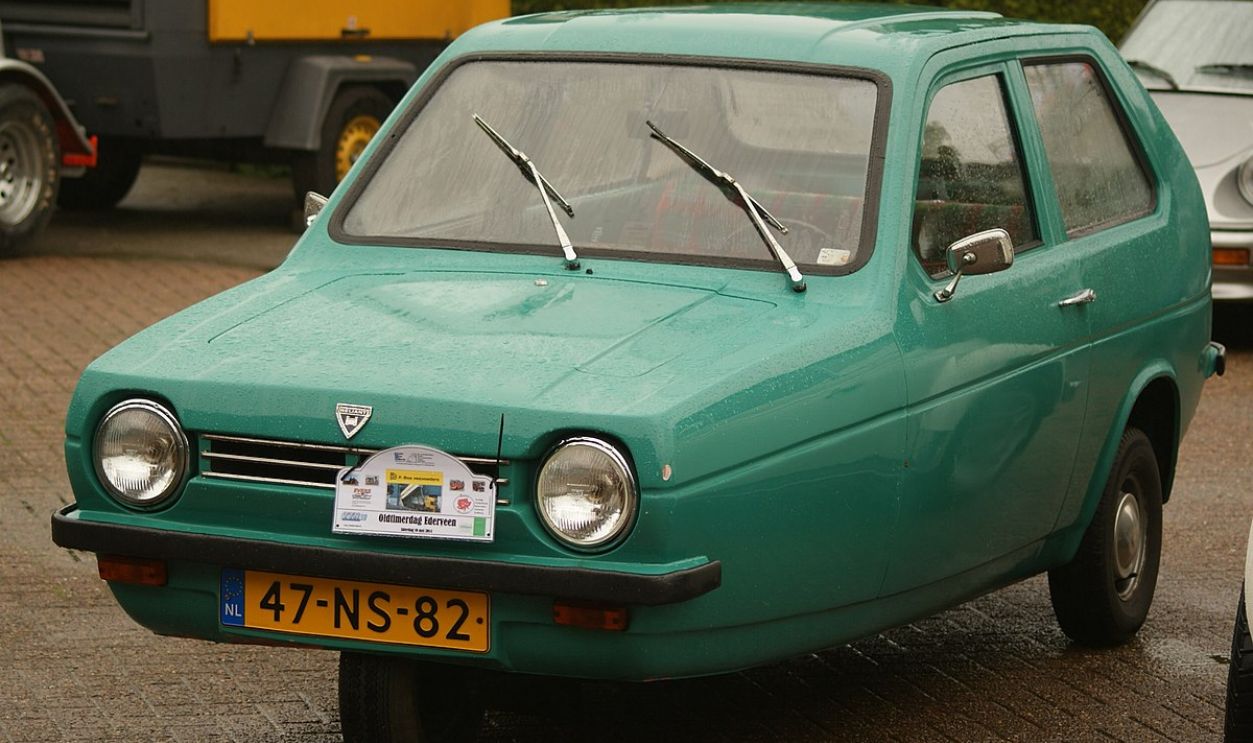 Niels de Wit, CC BY 2.0, Wikimedia Commons
Niels de Wit, CC BY 2.0, Wikimedia Commons
Renault Avantime
Without B-pillars, the Renault Avantime was a bold attempt to combine the characteristics of a coupe, minivan, and luxury car into a single vehicle. The designers probably went too far with its two-door design and high roofline, but the car created a new niche in the automotive market.
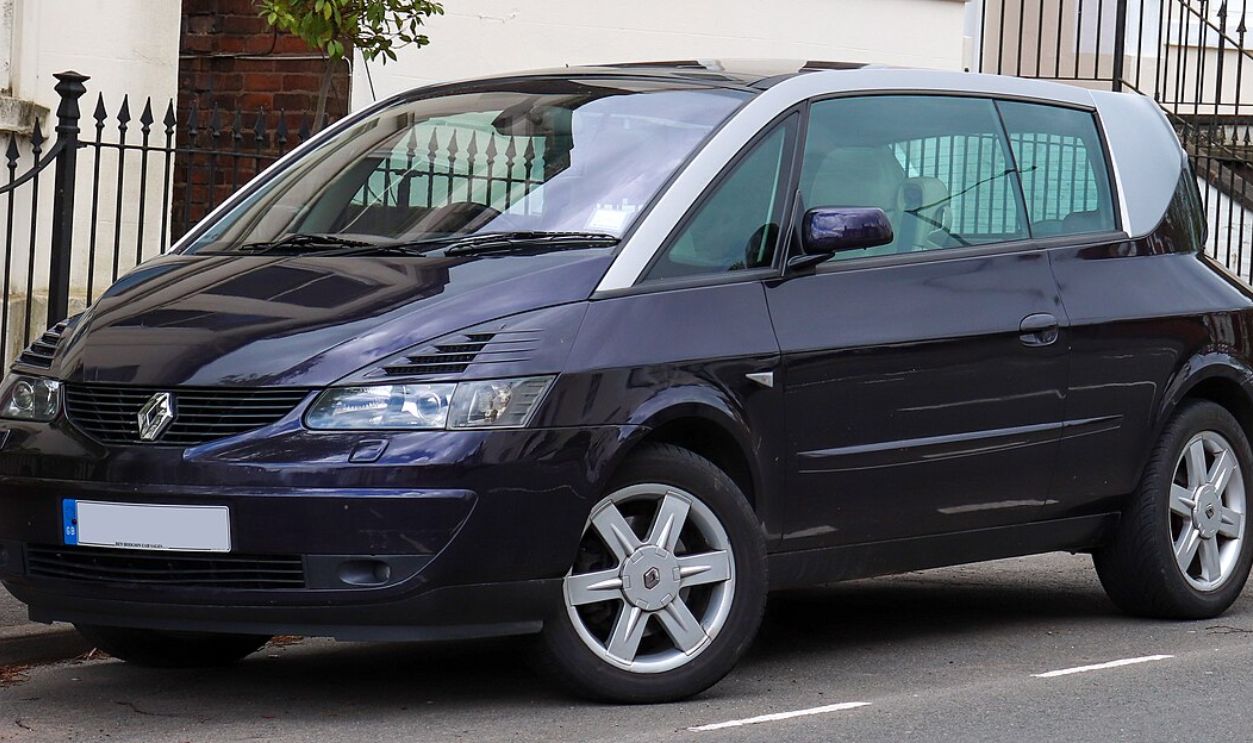 Vauxford, CC BY-SA 4.0, Wikimedia Commons
Vauxford, CC BY-SA 4.0, Wikimedia Commons
Nissan Figaro
Nissan designed the Figaro in 1991 as a retro-styled compact car inspired by 1960s European design. It was part of Nissan's Pike Factory series and featured a retractable soft top, round headlights, and a cute aesthetic that made it instantly look like it was from an Alan Dilon movie.
Chrysler Turbine
Featuring a turbine engine instead of an internal combustion one, the Chrysler Turbine was a revolutionary car produced in 1963. Its engine could run on various fuels, including diesel, kerosene, soybean oil, and even tequila. Only 50 prototypes were produced, maybe because people wanted to keep tequila for their drinks.
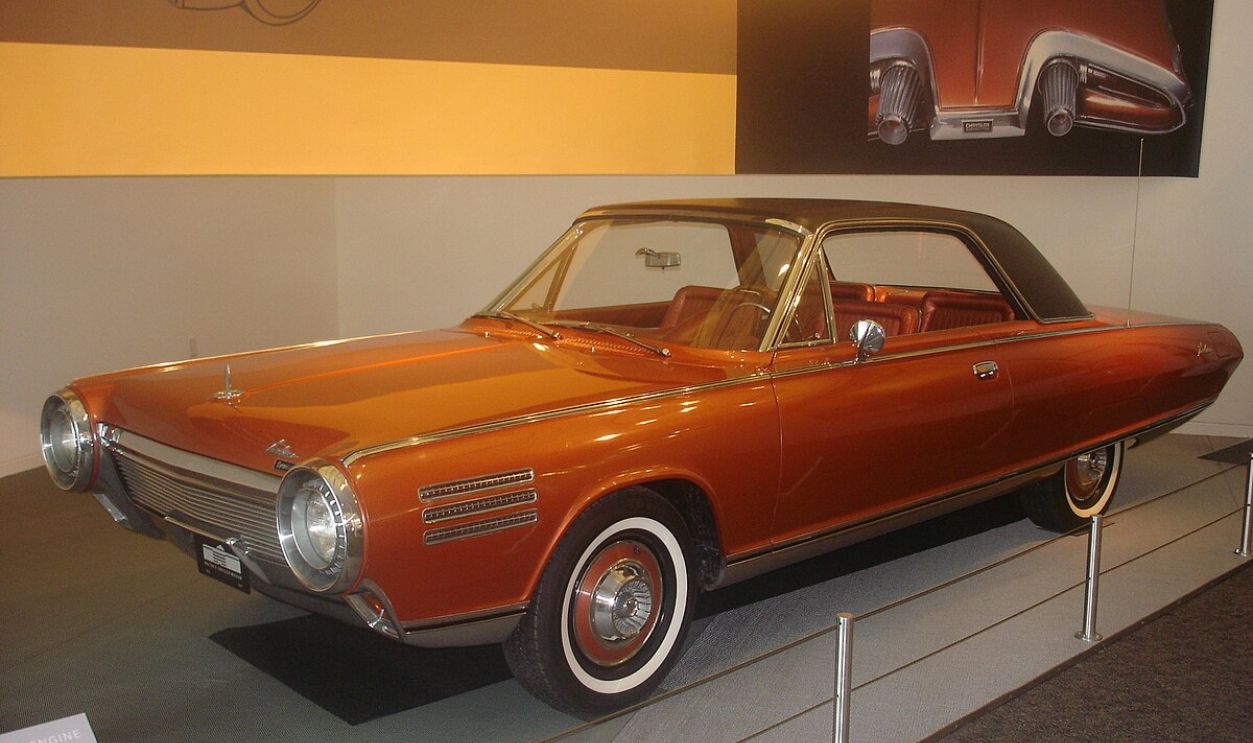 Karrmann, CC BY-SA 3.0, Wikimedia Commons
Karrmann, CC BY-SA 3.0, Wikimedia Commons
DeLorean DMC-12
The DeLorean DMC-12 is famous for its distinctive gull-wing doors and unpainted stainless steel body. After being featured as the time machine in the Back to the Future film series, it became a cultural icon. However, it was underpowered, and its performance didn't match its sporty appearance. What a bummer.
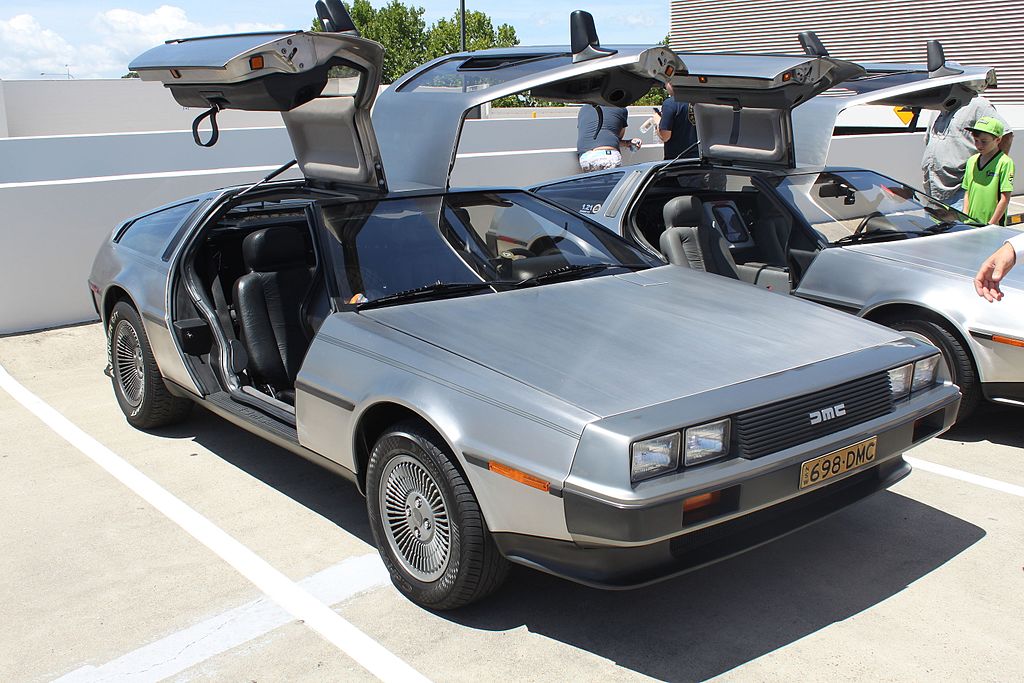 Jeremy, CC BY 2.0, Wikimedia Commons
Jeremy, CC BY 2.0, Wikimedia Commons
Karlmann King
With a price starting at $1.85 million, the Karlmann King is one of the most expensive and extravagant SUVs. It features an angular design, like an armored stealth fighter. It offers a custom bar, a refrigerator, and a massive 40-inch TV, for the spy who has to live in their car.
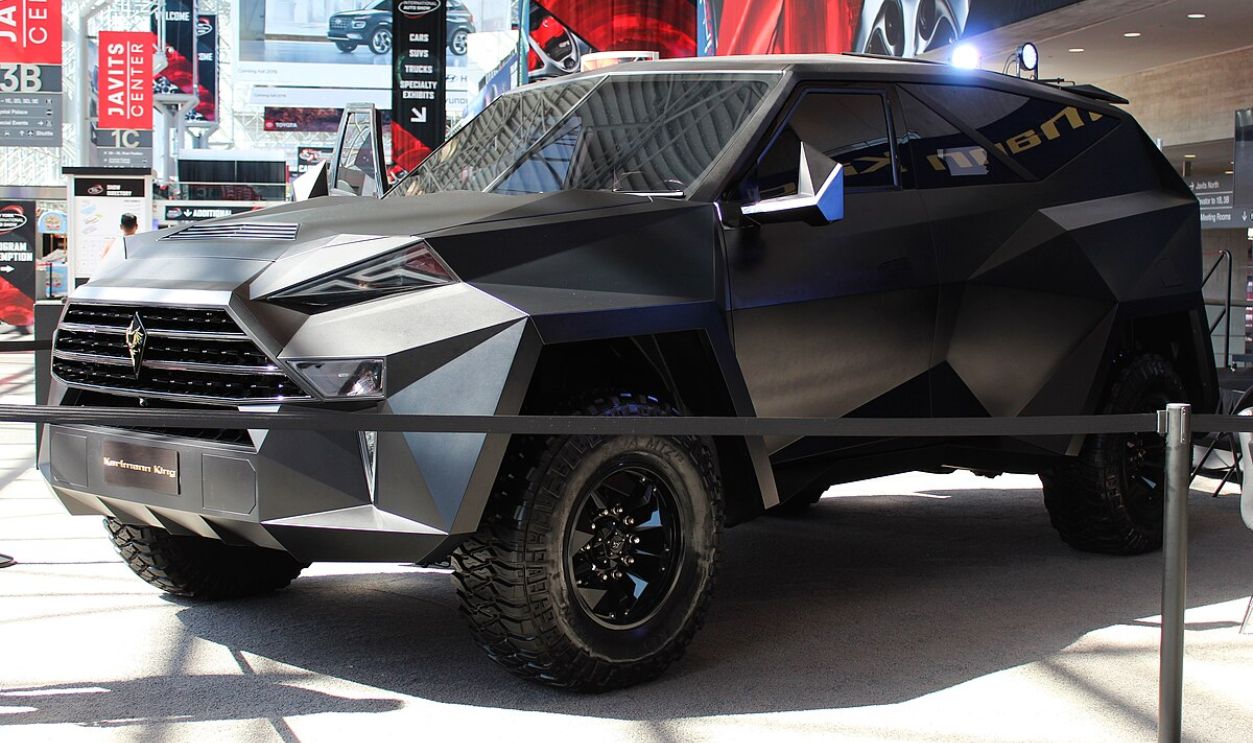 Kevauto, CC BY-SA 4.0, Wikimedia Commons
Kevauto, CC BY-SA 4.0, Wikimedia Commons
Polaris Slingshot
The Polaris Slingshot is a three-wheeled, open-air vehicle that blurs the line between a motorcycle and a car. It features an avant-garde design with a low center of gravity and an aggressive appearance. Think of all the cool places you can go to on this three-wheeler.
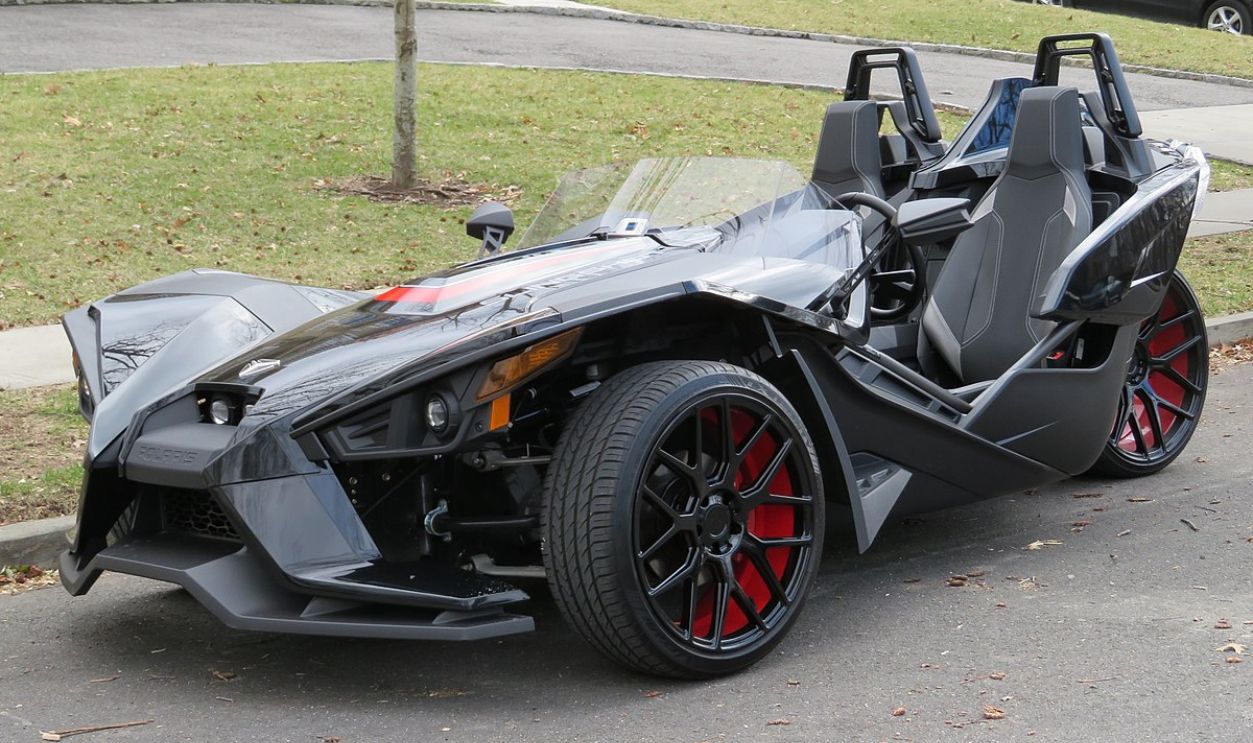 Kevauto, CC BY-SA 4.0, Wikimedia Commons
Kevauto, CC BY-SA 4.0, Wikimedia Commons
Reeves-Overland Octoauto
In 1911, the Reeves-Overland Octoauto was a prototype built with eight wheels to provide a smoother ride on the rough roads of the early 20th century. The extra wheels were intended to distribute the car's weight evenly and the wear and tear on the tires for better traction.
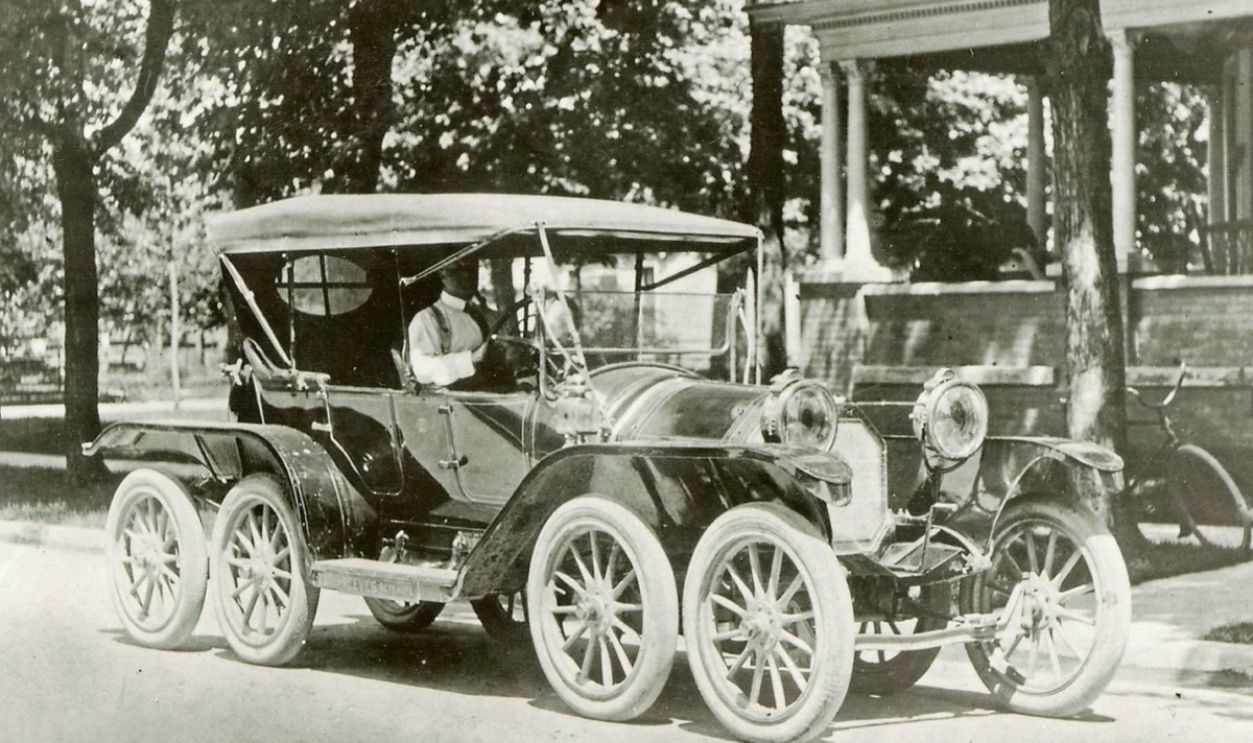 Unknown Author, Wikimedia Commons
Unknown Author, Wikimedia Commons
Bricklin SV-1
The Bricklin SV-1 was a Canadian limited-production sports car known for its gull-wing doors that made it look like a prehistoric bug. It was designed with safety in mind and featured an integrated roll cage, impact-absorbing bumpers, and acrylic body panels that were resistant to corrosion.
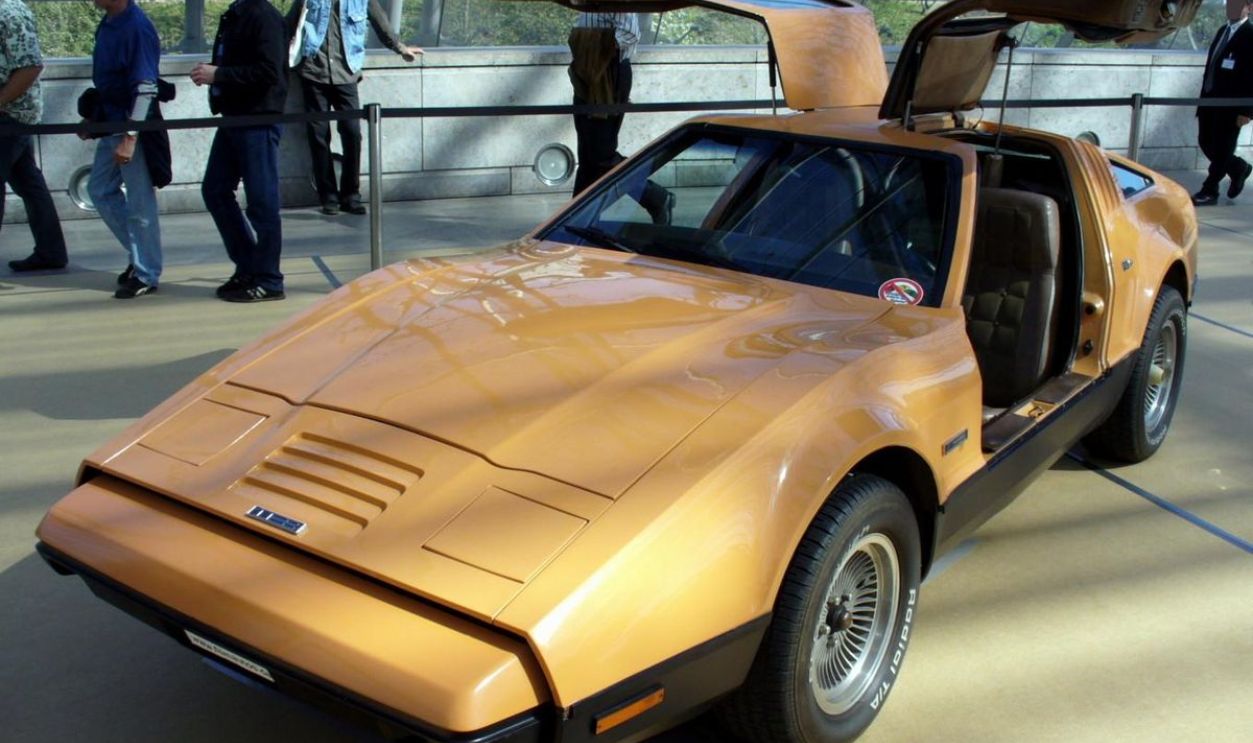 Thomas doerfer, CC BY-SA 3.0, Wikimedia Commons
Thomas doerfer, CC BY-SA 3.0, Wikimedia Commons
Subaru Brat
Subaru introduced the Brat in 1978 as a pickup truck with two rear-facing jump seats in the cargo bed. This design allowed it to avoid higher import tariffs on trucks. It was known for its all-wheel drive for on-road and off-road use, which made it perfect for adventurers.
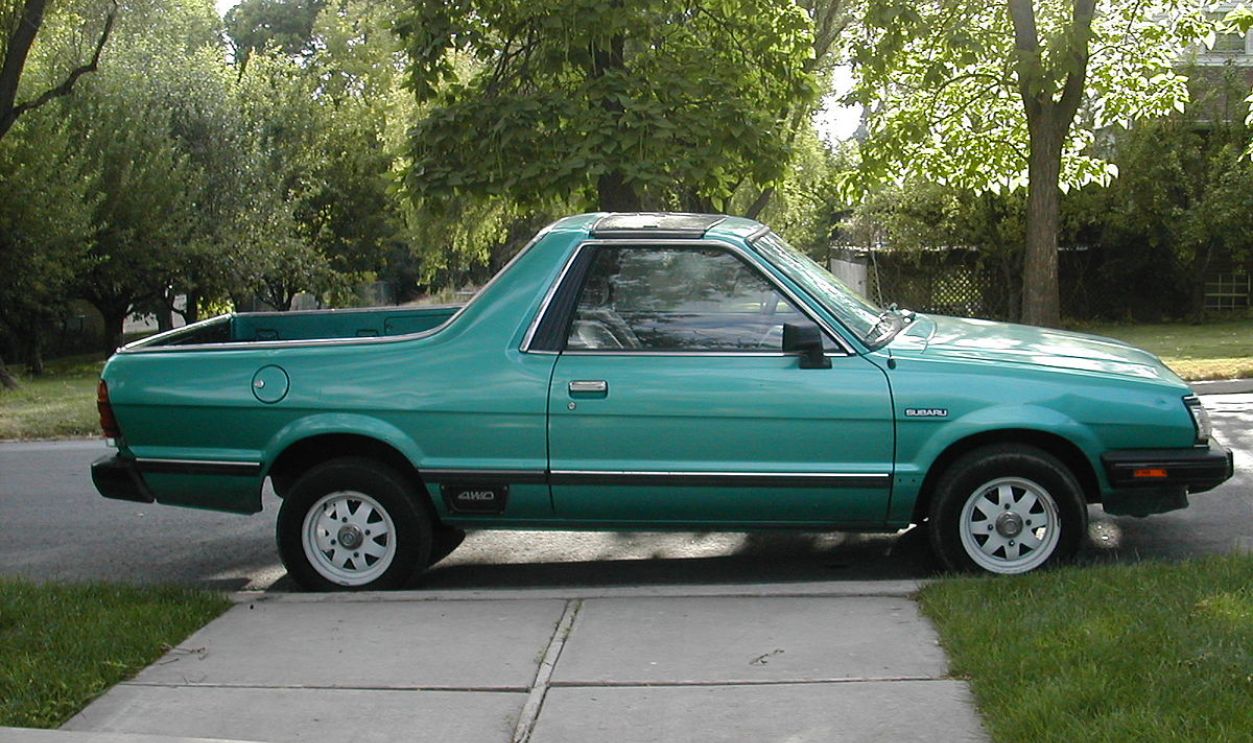 Subarubratman, Wikimedia Commons
Subarubratman, Wikimedia Commons
Renault 5 Turbo
As a high-performance version of the Renault 5, the Renault 5 Turbo featured a mid-mounted turbocharged engine, wide bodywork, and aggressive styling. The car's lightweight construction and powerful engine made it a favorite among rally enthusiasts. A car for daily commutes? Not so much.
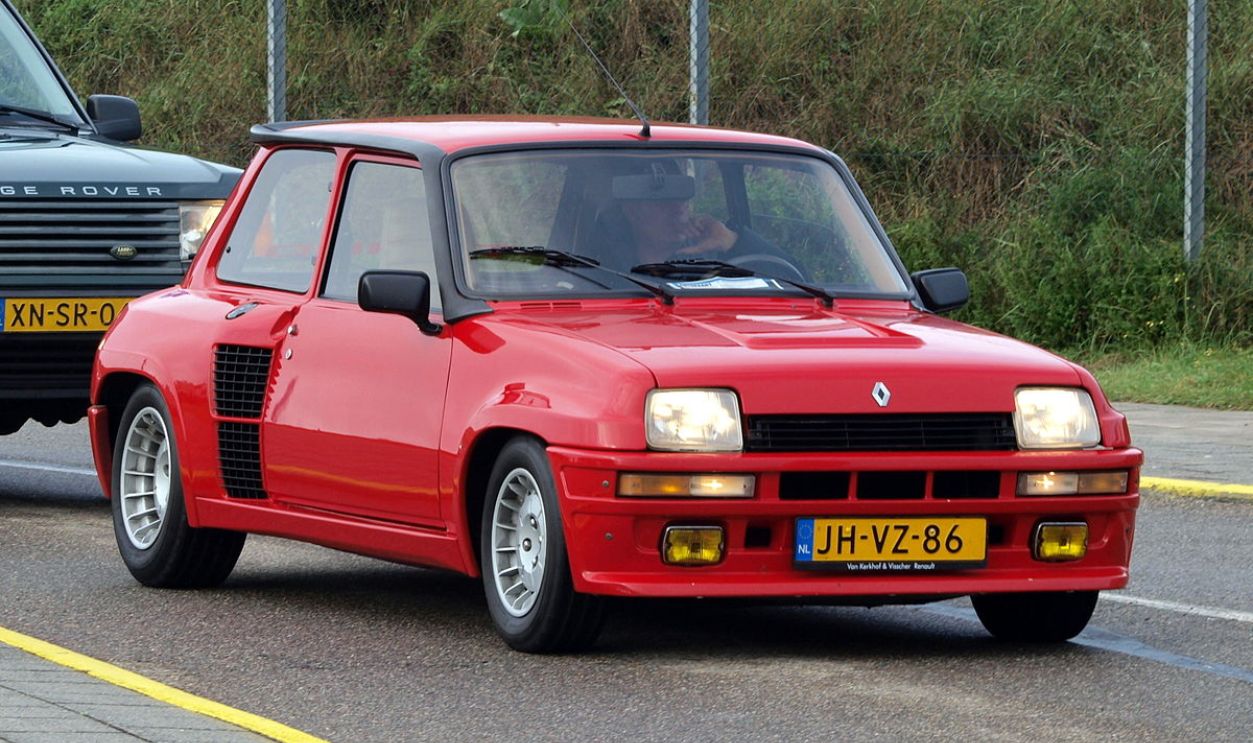 Alf van Beem, CC0, Wikimedia Commons
Alf van Beem, CC0, Wikimedia Commons
Tucker 48
Selling for $4000 in 1948, the Tucker 48 was one of the most innovative cars. It had a Cyclops center headlight that turned with the steering wheel, shatterproof glass, and a windshield that would pop out during a collision. Yet, the company didn't sell its idea, and production stopped.
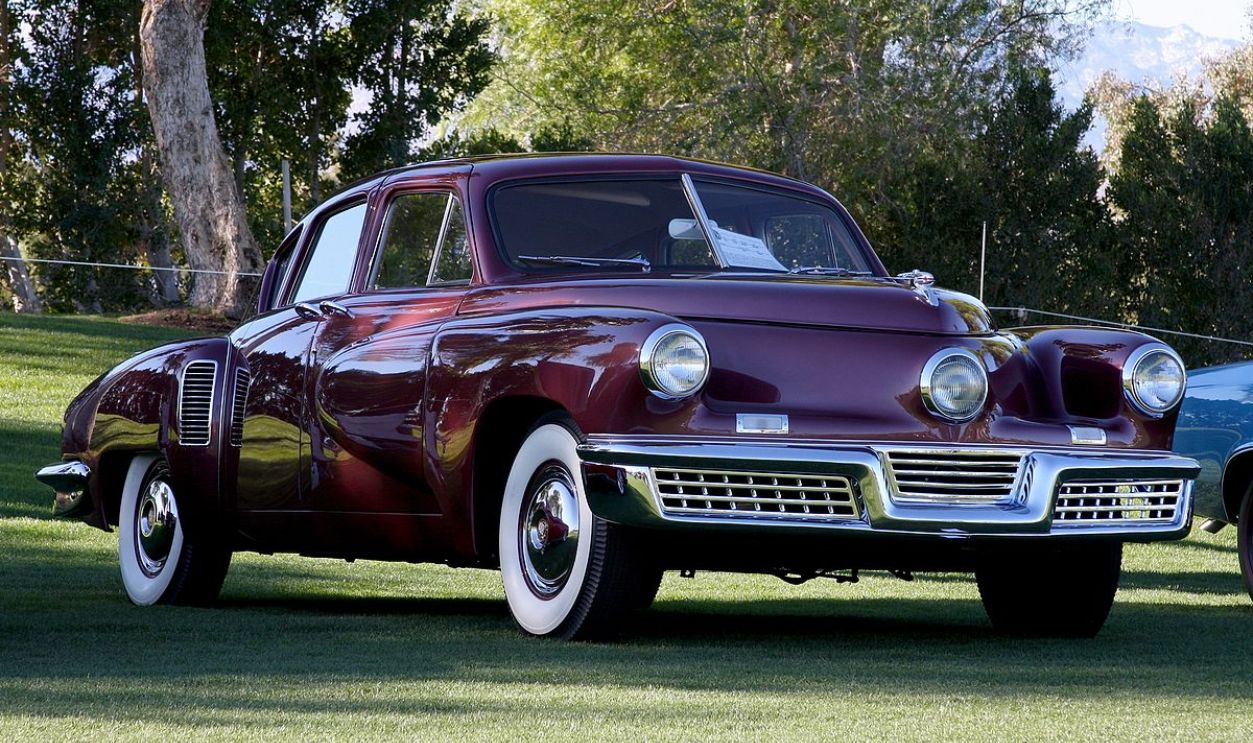 Rex Gray, CC BY 2.0, Wikimedia Commons
Rex Gray, CC BY 2.0, Wikimedia Commons

